
Africa Encompassed Southbound Itinerary
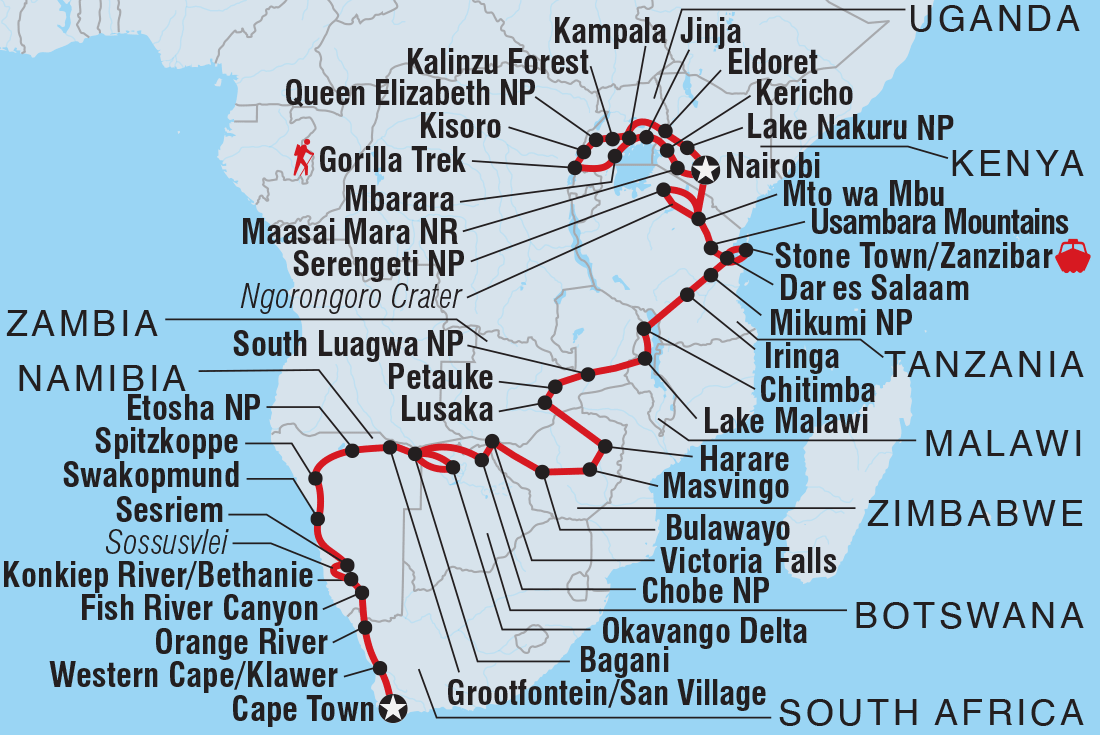


Jambo! Welcome to Kenya. Your adventure begins with a welcome meeting at 6 pm in Nairobi. If you arrive early, why not head out and soak up the cosmopolitan atmosphere of the city. There are plenty of good bars and restaurants, as well as markets and shops packed with arts and crafts from the region. After the meeting tonight, maybe join your new travel companions for a welcome dinner and get to know each other.
Take in the spectacular views of the Rift Valley, Lake Naivasha and Elementaita on the drive north-west to Lake Nakuru National Park – situated in the heart of the Great Rift Valley. You’ll arrive in time for a short evening game drive along the shore of the lake. Lake Nakuru National Park is a small and compact area based around a lake that makes a great location for spotting wildlife. Along with the other members of the Big Five, Lake Nakuru is home to many rhinos and will therefore be the best chance to get a snap of these magnificent beasts.
Rise early, have some breakfast, break up camp and head out on an overland game drive as you leave the park. Eat lunch at the gate before driving northwest to Eldoret – one of Kenya's fastest-growing cities. Tonight, enjoy a traditional dinner at your campsite located just outside Eldoret.
Today, you’ll leave Kenya behind and cross the border into landlocked Uganda, travelling on to its capital city, Kampala. With a population of over 45 million, Uganda is a country of great cultural diversity and is one of the five countries that make up the East African Community. As today is a long travel day, take a break from setting up camp with a stay at a hotel tonight. After your long drive, sit down for a dinner prepared by the hotel before settling in for a good night’s rest.
Travel to Queen Elizabeth National Park today. Once camp is set up, there's an option to take a boat cruise along the Kazinga Channel – well-known for pelicans, eagles and other birdlife, as well as a healthy population of hippos.
This morning, enjoy a leisurely overland vehicle game drive and look out for elephants, buffalo, Ugandan kobs and waterbucks. Later, take the short drive to Kalinzu Forest National Park. Some of its inhabitants include chimpanzees, black and white colobuses, baboons, red-tailed monkeys, both blue and red duikers, bushbucks, waterbucks, giant forest hogs, buffalo and elephants. When you arrive, settle into your camp and perhaps stretch your legs and explore your surroundings with the rest of the group.
This morning, you have the option to take an excursion to see the chimpanzees of Kalinzu Forest. More closely related to humans than any other living creature, the chimpanzees are a delight to watch as they squabble and play in fruiting trees. You can also choose to soak in the sounds of the forest from the comfort of your tent. Then, make your way to the southwest tip of Uganda, where the border touches Rwanda and the Democratic Republic of Congo. You’ll spend the night in Kisoro at a camp on the shore of Lake Mutanda, with views of the Virunga Mountain range. Tonight, relax and soak up the views, go for a swim off the small dock or go hunting for a glimpse of local weaver bird nests and African clawless otters.
Joined by a local ranger and gorilla trackers, you’ll climb through the rugged mountain terrain of Bwindi (translating to ‘dark’) Impenetrable National Park for the rare and exciting opportunity to encounter the gorilla families that live here. No more than eight people per day can visit any one habituated family and visits are strictly controlled to minimise disturbance. The terrain here can be quite strenuous, but the sheer thrill of coming across a group of gorillas dominated by a great male silverback more than outweighs the difficulty. Watch them eat, sleep, groom and play as the giant silverback surveys the scene and the smaller ones laze in the trees or play and be struck by the similarities between gorillas and humans.
If you didn’t get to complete your gorilla visit yesterday, you’ll head out today. With your free day, your leader will provide you with options and ideas on how you can spend your time in the area around Kisoro. You can head out on more rainforest hikes to see monkeys, take some nature walks, or perhaps take a day excursion over the border to Rwanda to visit the genocide memorial, art museum and Nyamirambo women’s center. However, please ensure you have a Rwanda or East Africa visa.
This morning, you’ll turn back towards the capital of Kampala and embark on a bit of a travel day. You’ll break up the journey at the pit-stop town of Mbarara for the night. There’s not much to do around Mbarara, so tonight’s a great opportunity to recharge, get stuck into a book or relax at the camp.
Today you'll continue your journey inland, travelling towards Jinja. The Jinja region is one of the highlights of any visit to Uganda – a riverside retreat at the source of the Nile that’s also the adventure capital of the country. Tonight, you’ll camp at a scenic riverside site and enjoy a good night’s rest ready for tomorrow's adventures.
Located at the source of the Nile as it leaves Lake Victoria, Jinja is a place for the adventurer, the adrenaline junkie and the eco-traveller. Enjoy a full free day here to explore at your own pace, with a bunch of optional activities to choose. Maybe get active with some whitewater rafting or float along the river on a kayak. You can also opt for a boat cruise to the source of the Nile, to enjoy the river from a new perspective.
Farewell Uganda and begin the journey back to Kenya and Nairobi, stopping overnight at the town of Kericho – one of Kenya’s most popular towns due to its tranquil surroundings, blanketed by thick tea plantations and evergreens. Sitting at the edge of the South-Western Mau National Reserve and is known for its vast tea estates. When you arrive, visit a tea plantation and learn about the tea farming process from the locals themselves.
This morning, drive to the famous Maasai Mara National Park. Stop in Loita Hills on the way, home of the traditional Maasai people, and visit Tepesua Village. You’ll be welcomed by Maasai warriors through traditional song and dance. Meet your Maasai hosts and listen to a talk full of insights into the remarkable ancient culture. The Tepesua Community was formed with the aim of promoting education, empowering women (including widows and vulnerable women in the community) as well as promoting community development. There are multiple projects that aim to educate boys and girls and support women’s development and empowerment, focusing especially on the village mamaas (widows). Learn how the community creates job opportunities for the youths in the village and meet the women who make eco-friendly handbags and backpacks to sell to visiting travellers and locals. Travel on to the Maasai Mara – with sparse open plains, dramatic skies and the world's most iconic animals living within its boundaries, this is the quintessential African experience. Explore this diverse environment and view a multitude of wildlife on an early evening 4WD game drive with expert local driver guides.
This morning, maybe take an optional balloon ride over the Mara at sunrise. If you’ve pre-booked this activity, you’ll be picked up before dawn and driven to the launch site for a safety briefing from your pilot. You’ll then glide through the skies, sometimes at tree height, for some amazing photo opportunities. After landing, you'll be treated to a bush breakfast before meeting up with the rest of the group. Today you’ll venture into the Maasai Mara National Reserve with expert local driver guides for a day-long 4WD safari. You'll explore this diverse environment and most likely see a multitude of wildlife.
This morning, you'll make your way back to the bustling metropolis of Nairobi. On arrival, settle into your hotel and spend the evening at your leisure before attending a second welcome meeting at 6 pm to meet your new group.
Depart early for Mto wa Mbu in your overland truck. The trip includes a border crossing from Kenya into Tanzania, so be sure to have your passport handy. While you're on the road, there will be a stop at an ATM and a market or shop to stock up on any supplies you might need for the coming days. Arrive in Mto wa Mbu and acquaint yourself with this delightful small village – it's a fascinating snapshot of small-town African life, situated well off the tourist trail.
Get up early, put your camping and personal gear into a six-person jeep and head out for an excursion into the Serengeti via the Ngorongoro Crater. Enjoy a safari in the crater, spending 3 to 4 hours exploring this incredible, perfectly intact volcanic caldera. Watch for black rhinos, lions, leopards, elephants, impalas, zebras and hippos. The crater floor offers excellent game viewing all year round (some 30,000 animals live here) and the photo opportunities are unrivalled. Next, it's on to the wide-open plains of the Serengeti. Green after the rains, brown and burnt in the dry season, this is perhaps the quintessential image of Africa – the home of thousands of hoofed animals and fierce predators. Your campsite is within the Serengeti itself, so listen out for the sounds of nocturnal animals as you drift off to sleep.
Awake at dawn and embark on a game drive. You will head out while the animals are at their most active, then head back to camp for brunch at around 11 am. After spending the middle of the day relaxing, just like the animals do, head out again as the day begins to cool. You'll return from this second game drive in time for dinner. There's also the option of a balloon ride over the park this morning – in place of some of today’s game drives. If you have pre-booked this activity, you will be picked up before dawn and driven to the launch site. After a safety briefing, glide through the dawn, sometimes at tree height, getting some amazing photo opportunities. Sometimes you will ascend, getting an overview of the enormity of the plains and the early morning movements of the teeming herds. After landing, indulge in a five-star bush breakfast, then be returned to camp.
Rise with the sun and enjoy another game drive as you leave the Serengeti in your dust. Jump back into your overland vehicle and head for Mto wa Mbu.
After setting up camp, we'll take a guided stroll through the farming areas, local homes and farmlands, getting to know the local community and their way of life. Later, we'll enjoy a scrumptious local dinner in town.
Prepare yourself for a long travel day heading for the Usambara Mountains. Stretch your legs during a brief supply stop in Arusha, then jump back in the vehicle and watch the ever-changing scenery, read your favourite book or get to really know your fellow travellers. Your base will be Lushoto – an old German colony and home to the Wasambaa people. This highland town sits at approximately 1400 metres and this evening you'll camp in the grounds of one of the oldest hotels in Africa.
Explore the beautiful Usambara Mountains today – a lovely unspoilt area of Tanzania. Unlike the coast and the north, very few tourists visit this part of the country, so it has a freshness that can be hard to find elsewhere. As beautiful as the surrounding mountains and rainforests are, however, the real jewels here are the local people and villages. You'll experience some hospitality on a visit to some of the small local communities. From your base, you will take a walk out to the gorgeous Irente viewpoint. It's best to pack some water and snacks in a day pack for this trip. On your way back, visit a local cultural project where you enjoy a prepared lunch.
Leaving the mountains behind, travel further south to the coastal town of Kipepeo Beach in Dar es Salaam. Your camp is by the beach, so make the most of it – perhaps take a stroll along the shore after you arrive and settle in.
Catch a ferry to Zanzibar, Africa’s famous ‘Spice Island.’ On arrival, enjoy some free time to discover Zanzibar City at your own pace. Lose yourself in the maze of cobblestone alleyways in Stone Town, admire the mix of Arabic, African and European architecture, or soak up the bustling atmosphere of Darajani Bazaar. This afternoon, you’ll have another welcome meeting at 2 pm to meet the new travellers joining you on the next leg of your adventure. After your meeting, perhaps head out together for dinner at a local restaurant – your leader will have the best recommendations.
Once checked out of your Stone Town accommodation, consider booking in to an optional guided tour of the island's spice plantations, learning all about the history of this town's spice trade. You will have the opportunity to smell and taste various spices, such as cinnamon, vanilla and ginger, plus sample some teas made with these spices too. After lunch, head to the Northern Beaches, where white sands and sparkling blue seas await. This is the Indian Ocean at its best.
Ease into the day with the sound of gentle waves and soft ocean breezes. With a full day free to enjoy Zanzibar’s coastline, you might choose to take a refreshing swim, stretch out on the beach beneath the palms, or savour the flavours of the island with a seafood dinner by the water. However you spend it, today is all about slowing down and letting the rhythm of island life take over.
Spend a final morning relaxing on the sandy northern beaches before returning to Stone Town for an afternoon and evening at leisure. Maybe ask you leader where to grab a urojo, a unique and delicious street treat made from potatoes and noodles stewed in a stock of tumeric, mango, flour and more. Or maybe grab a sugarcane juice and have a wander. You've got a long day of driving ahead tomorrow, so make the most of your free time while you can!
Embrace an early start this morning with a 7.30 am ferry to the mainland, then make tracks for Mikumi. Watch the Tanzanian landscape pass you by along the way, as this long drive is a great chance to soak up the scenery. Gaze out at vast plains dotted with baobab and tamarind trees and maybe catch a glimpse of some of the elephants, buffaloes, giraffes, lions and leopards that call the park home. When you arrive at your camp, your leader will show you the ropes (literally) and help you set up and get comfortable for your night in the tent.
Wake up early this morning to head off on a 4WD game drive into Mikumi National Park with local expert guides. This less touristed park is home to impressive numbers of elephants, hippos, giraffes, zebras, buffalo, warthogs, wildebeest and impalas – you may even spot a predator! After, you'll drive to Iringa and set up camp on the grounds of a farmhouse on the outskirts of the settlement. The area is filled with natural bush land and native birds. Make the most of this rural setting with some stargazing before you retire for the night.
Enter Malawi this morning and travel to your campsite at Chitimba. Malawi, the ‘warm heart of Africa,’ is dominated by its lake, which covers almost a fifth of the country and provides a livelihood for many Malawian people. Fishermen, fish traders and canoe and net makers all ply their trade on Lake Malawi. A common sight is a fisherman in a bwato (a dugout canoe made from a hollowed tree trunk) fishing on the still lake at the break of day.
Travel from Chitimba to Kande Beach today, on the shore of Lake Malawi. There will be a chance to stop at a shop or market for any supplies you might need along the way. Enjoy a relaxing getaway from the commercialism and crowds with a few days on the lake’s more peaceful beaches. Your campsite at Kande Beach is right on the shore of Lake Malawi.
Enjoy free time today to soak up your idyllic surroundings. As well as chilling out on the lake’s sandy shores, make sure you take the opportunity to meet some local Malawians – easily some of the friendliest people in Africa! You can also hire canoes, bikes or pedalos (paddle boats) to enhance your time here.
Journey through southern Malawi and enter Zambia today, continuing to South Luangwa National Park. There will be border crossing formalities on the way, and a chance to stock up on goods or visit an ATM at a local shop or market. The concentration of animals around the Luangwa River and its lagoons is some of the highest in Africa, so when you arrive, take in the beautiful scenery and the abundance of wildlife, watching out for colourful birds and herds of elephants.
Rise early this morning, grab a light breakfast and get ready for a morning game drive in a 4WD with a local guide. Then, you'll head back to the camp for an early lunch (as this is the hottest part of the day). Rest in the shade or take an optional village walk if you'd like a snapshot of daily life in the local community. Return to the park for another game drive in the evening, looking out for the local wildlife as the sun sets.
After breakfast, you'll visit a workshop where local craftswomen take snare wire recovered from poaching traps and transform it into jewellery inspired by the African bush. The women will show you around their purpose-built workshop and give you a chance to try coiling or hammering the wire yourself. For each sale made, a donation is given to anti snare patrols dedicated to the conservation of the region. After your visit, you'll jump back in the vehicle and head further south to Petauke.
This morning you'll be back on the road, heading for your next camp just south of Lusaka City. When you arrive, stretch your legs and take a stroll to discover the town on foot. Though it's fast developing, Lusaka retains a strong African feel, and the locals are usually up for a chat. Your local leader will also give you some insight into the area. Tonight, you're free to chill out under the stars at camp.
Travel to Harare today. The first part of your journey takes you to the border with Zimbabwe. After crossing and going through border formalities, you'll continue to Harare. There will be a chance to explore the town when you arrive, as well as stock up on whatever you need at a market or local shop.
This morning, it's onto Masvingo. This colonial settlement – the oldest in Zimbabwe – makes the perfect base for exploring the ruins of Great Zimbabwe. The ancient city, now a UNESCO World Heritage site, was first constructed in the 11th century and is believed to have been the seat of power for a monarch. Spend a few hours exploring this intriguing site before heading off to camp where your night is free to relax.
Travel to Bulawayo today. Known locally as the 'City of Kings', Bulawayo is Zimbabwe's second largest city. There is some impeccable historical architecture to take in here, so feel free to walk around at your own pace when you arrive. Enjoy free time this afternoon to explore town or ask your local leader for some optional activities. You might like to browse some local markets or chat with the locals. The Natural History Museum and National Art Gallery are also worth checking out.
Get ready for the experience of a lifetime today – tracking rhinos on foot with an expert guide! Matobo National Park, known for its black and white rhinos, is also home to other wildlife like klipspringers, leopards, warthogs and springhares. You'll learn all about these unique animals from your guide and gain insights into the local plants and trees, including wild pear and paperbark. Discover San paintings and the fascinating rock formations of the area, too. Matobo National Park is an important site of spiritual and cultural significance for the local people, and there are many places in the park where important ceremonies still take place.
Depart Bulawayo this morning and make the drive towards Victoria Falls. Stretching 1.6 km wide and falling 108 m into a narrow gorge below, the falls are a sight to behold. Although a visit to the falls themselves is optional, it's highly recommended. In the wet season, the spray created from this feat of nature can rise 400 m and can often be seen from far in the distance. It’s no wonder that the local name for Victoria Falls is Mosi oa Tunya, or the 'Smoke that Thunders'. If you’re travelling in the dry season, you’ll get an unobstructed view of the falls and the chance to see the islets in the river below. Your leader will take you to a local activity centre today, where a range of activities will be on offer.
Today is a free day to enjoy the many activities on offer. If you are interested in the optional helicopter flight (12 minutes or 25 minutes) we endorse the following operator only: Zambezi Helicopter co CAA Zimbabwe. Your local leader can help you arrange this, so feel free to ask them or find out more information at the activity centre.
Today you have the option of visiting the magnificent Victoria Falls. Spanning about a mile wide across and falling 108 m into a narrow gorge below, the spray from the falls can sometimes be seen from kilometres away. In the dry season, the view of the falls is unobstructed by mist, and it's possible to see little islets in the river below. To fully understand the sheer force of this staggering curtain of water, it needs to be experienced in person. It's no wonder that the local name Mosi oa Tunya means the 'smoke that thunders'. Alternatively, your leader will be able to recommend a range of other activities that are available.
This morning is free for you to continue enjoying all that Victoria Falls has to offer. Afterwards, travel to Chobe National Park in Botswana via the Victoria Falls Wildlife Trust, one of The Intrepid Foundation’s projects. Here you can learn about the rescue and rehabilitation of wildlife, human-wildlife conflict and the Trust’s role in anti-poaching. There may also be a chance to meet any rescued or orphaned wildlife currently in their care. Continue your journey to Botswana's first national park, which is famous for its high concentration of elephants, so keep an eye out! They can often be seen swimming in the Chobe River.
Rise and shine for an early-morning game drive. Adventuring through the park, you will get the opportunity to get up close to the wildlife – with luck you will spot a variety of animals and any number of exotic birds. As well as the Chobe icon, the elephant, the river also attracts hippos and crocodiles – the latter like to sun themselves by the water's edge. Cheetahs also come down for a drink. The birdwatching is excellent here too – look out for eagles, kingfishers and marabou storks, among hundreds of other species. In the afternoon perhaps take an optional cruise down the Chobe River – one of the best ways to enjoy the park's animals.
Today you will enter Namibia, driving from Kasane to Ngoma Bridge, and on to your camp at Bagani. Enjoy the journey, watching the scenery change with towns, trees and skies rolling past you. Bagani is the homestead of the local Mbukushu kings. You will have the opportunity to stop at an ATM and a market or shop today.
Cross the border into Botswana and travel south along the Okavango Panhandle to Sepopa. Leave the truck behind as you head deeper into the delta. A boat ride will take you to your mokoro team, where you’ll begin your exploration of the Okavango Delta. Each mokoro (a traditional dugout canoe) is expertly poled through the waterways by a local guide. As you glide past reeds and lily pads, the peaceful atmosphere may be interrupted by the grunt of a hippo. On your first night, camp on a secluded island, far from the reach of civilization.
Continue exploring the delta today by mokoro and enjoy a short guided nature walk. Later, return to Sepopa Camp, where you can relax with hot showers, a swimming pool, and a small bar. For a different perspective, you have the option to take a scenic flight over the delta for an unforgettable aerial view.
Cross the border back into Namibia and return to Bagani to camp for the night. Various boat trips and guided hikes are possible from Bagani, so if you're feeling active, get out and make the most of it. Those who are feeling bold might even be able to challenge the local kids to a soccer match – don't expect to win though! Retire to your camp in the evening and enjoy this welcome break from the road.
Drive to your camp situated 50 km outside of Grootfontein. The town of Grootfontein, part of the Otavi Triangle, tends to get very green in the warmer months but dries out markedly in the winter. If it's springtime, you'll likely see jacarandas in bloom.
Embark on a 180-km (112-mile) round-trip to visit the San people. The oldest inhabitants of southern Africa, the San, have lived in this region for at least 20,000 years. Listen to their stories and songs and learn how those who still adhere to a traditional way of life emphasise the importance of living in harmony with the environment.
Travel to Etosha National Park this morning. While Etosha National Park is home to a wide range of southern Africa's wildlife, including the big carnivores and five rare or endangered species: black rhino, Hartmann's mountain zebra, black-faced impala, roan antelope and the tiny Damara dik-dik. Game viewing in Etosha is relatively easy due to the man-made waterholes and the large, sparsely vegetated pans. The bushland surrounding the pans is difficult to see through, but there are enough clearings, pans and waterholes to usually allow for some sightings. Embark on an optional evening game drive here in the evening, then spend the night at Namutoni. Accommodation upgrades are on offer here.
Enjoy a full-day game drive in Etosha National Park. Namibia has protected its game reserves against poaching, which means significant numbers of elephants, antelope and other herbivores reside here. The park is also home to some 340 species of birds – keep an eye to the sky where you might spot a soaring eagle. Tonight, you will stay at the particularly spectacular Okaukuejo Camp. The camp overlooks a floodlit waterhole visited by many different species throughout the day and night. Upgrades are not available at this location tonight.
Travel to the mountain of Spitzkoppe today. The wild lands around this superb granite peak are some of Namibia's most stunning. The mountain itself is 700 million years old and 1987 m (6519 ft) high. Although you shouldn't try to climb to the top, the area is rich in plant life and with some bush paintings to be found. Be sure to look out for the sunset from your bush camp this evening – the landscape is known to take on dazzling hues of orange and red.
Continue to the town of Swakopmund. Be dazzled by the sight, sound and smell of thousands of olive-coloured seals on the shores of Cape Cross while you're travelling up the Atlantic Coast. You'll be able to stop along the way to access an ATM and market if you need some supplies.
Surrounded by the massive dune fields of the Namib Desert on three sides and the Atlantic Ocean on the other, Swakopmund is an example of the German culture found in all major settlements in Namibia. With your free time, maybe wander the streets and explore at your own pace or ask your leader for recommendations on activities and dining options.
Today is another free day to enjoy this fun beachside town. If you're after a dose of history and culture, you can stop in at the lighthouse and visit the Swakopmund Museum. Active types and thrillseekers might like to take advantage of the many outdoor activities on offer – this town is the adventure sports mecca of Namibia.
Drive to Sesriem, your base for exploring the incredible Namib Desert region. The most famous part of the Namib Desert is its vast dune fields, the most spectacular of which are found near the Sesriem Canyon. This canyon was formed when the Tsauchab River carved a gorge 30 metres into the gravel deposits about 15 million years ago. Now, the river flows out to the dune fields that stretch for hundreds of miles up the coast and dries up in a clay pan at Sossusvlei. The dunes – the highest in the world – are stunning, with magnificent flaming tones created by the brightly coloured sands.
Wake up before dawn and scramble to the top of the dunes for a dramatic sunrise view across a vast sea of sand. The colour changes are simply incredible and provide a spectacular setting for your brunch. Afterwards you will jump in the back of a pickup truck for a trip to Sossusvlei, the incredible salt and clay pan just nearby. Enjoy some time to explore this incredible and mysterious desert oddity. Later, continue to your camp past the small town of Bethanie. Your camp has basic facilities, with showers, flush toilets, wi-fi and optional upgrades.
Check out the town of Bethanie before heading further south into the vast desert lands of Namibia towards Fish River Canyon. At 500 m deep and over 160 km long, Fish River Canyon is one of the very largest canyons in the world. During the dry season, the riverbed tends to dry out completely, leaving only a few puddles. In the wet season, after the summer rains, the river can turn into a spectacular raging torrent. At any time of year there are remarkable photographic opportunities here as you watch the colour of the granite rocks change as the sun goes down.
Departing Fish River Canyon, travel to Noordoewer in southern Namibia. Pitch your tent on the scenic banks of the Gariep (Orange) River, which stretches 2200 kilometres (1367 miles) – the longest river in Lesotho. The river’s source is high up in the Drakensberg mountain range, and it flows into the Atlantic Ocean at Alexander Bay in South Africa. The Orange River is responsible for transporting diamonds and creating the deposits that can be found along the Namibian coast.
Depart your camp first thing in the morning and head to Klawer, a town named after the Afrikaans word for a wild clover blooming after rainfall. The surrounding countryside is beautiful, and if there's time, you’ll have the opportunity to explore some of it. Perhaps take a delightful walk around the nearby mountains and farms before settling in for a relaxing evening.
Head to Cape Town this morning, where your trip will come to an end. With its stunning coastline, modern cityscape, nearby mountains and a plethora of vineyards within reach, this is one of Africa's most exciting cities. There's no accommodation provided for tonight, but this can be arranged – please enquire at the time of booking this trip.

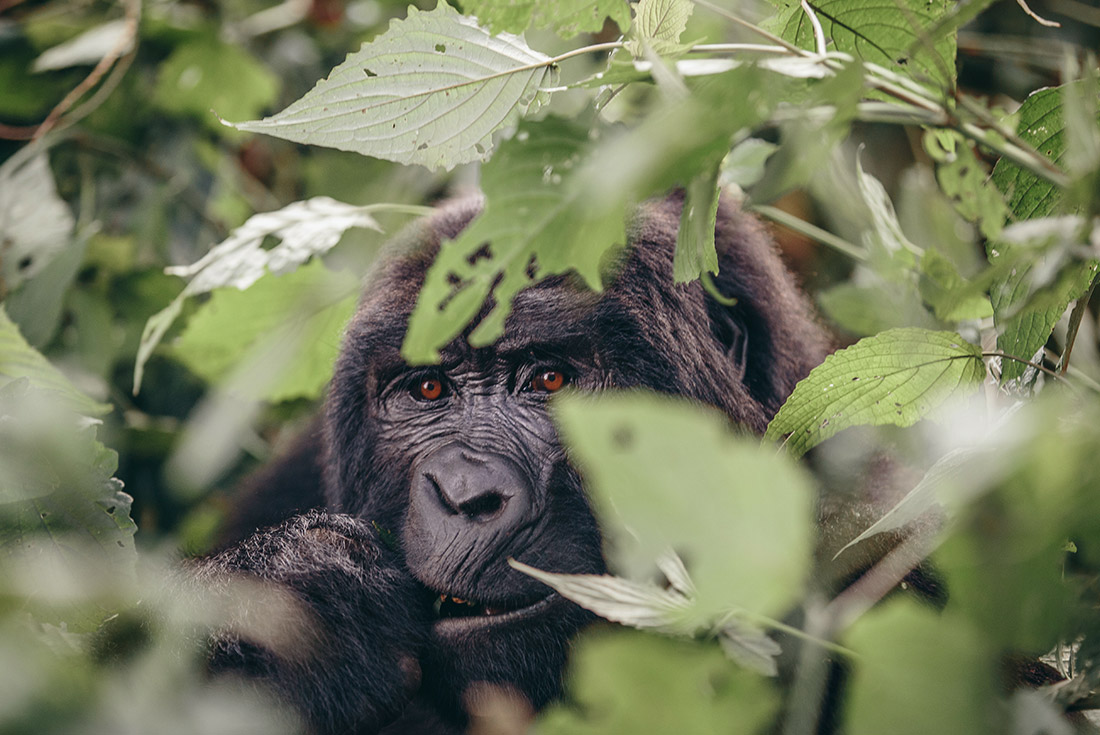
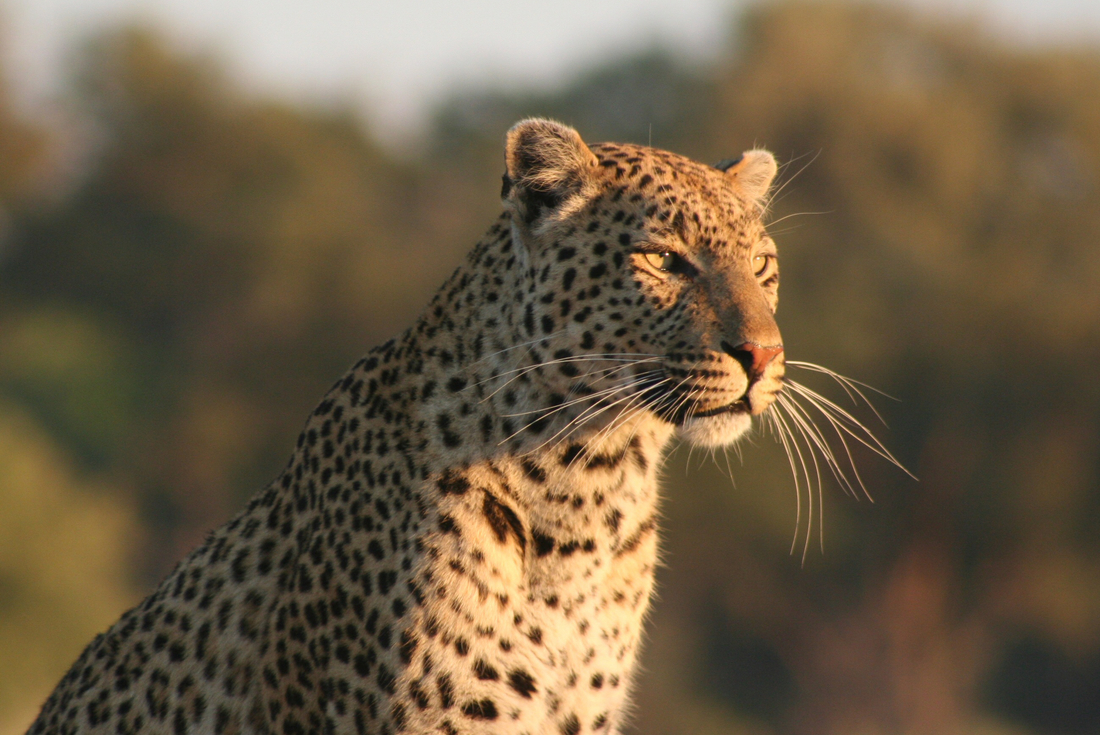
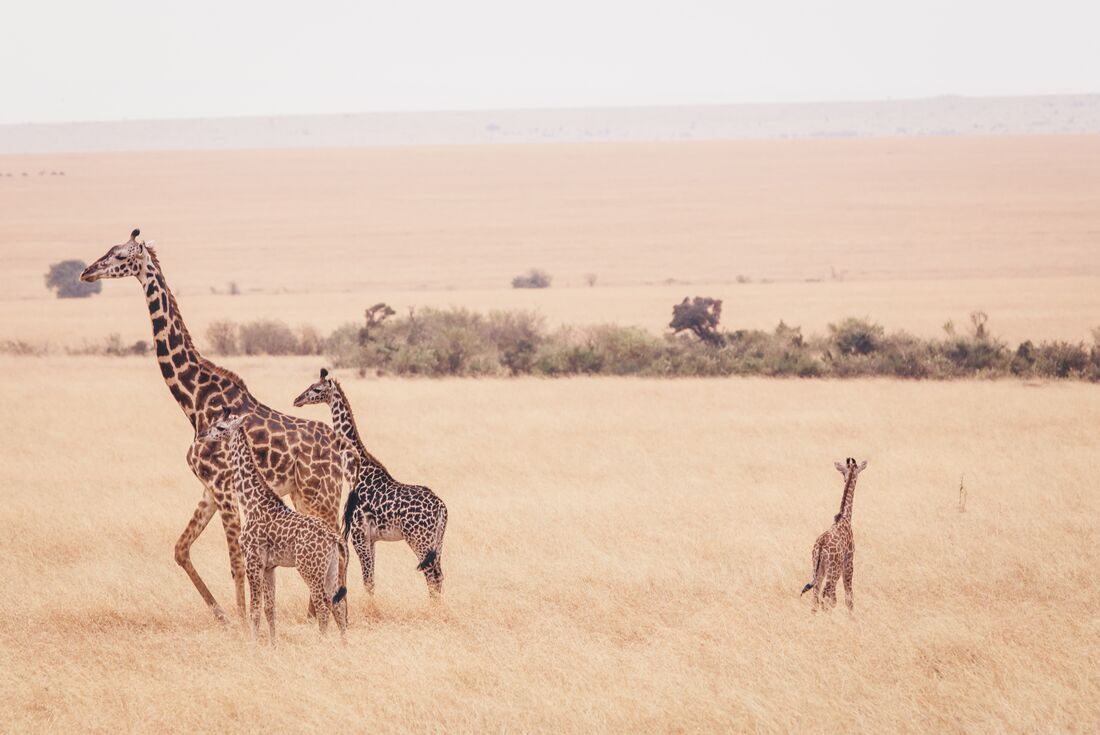
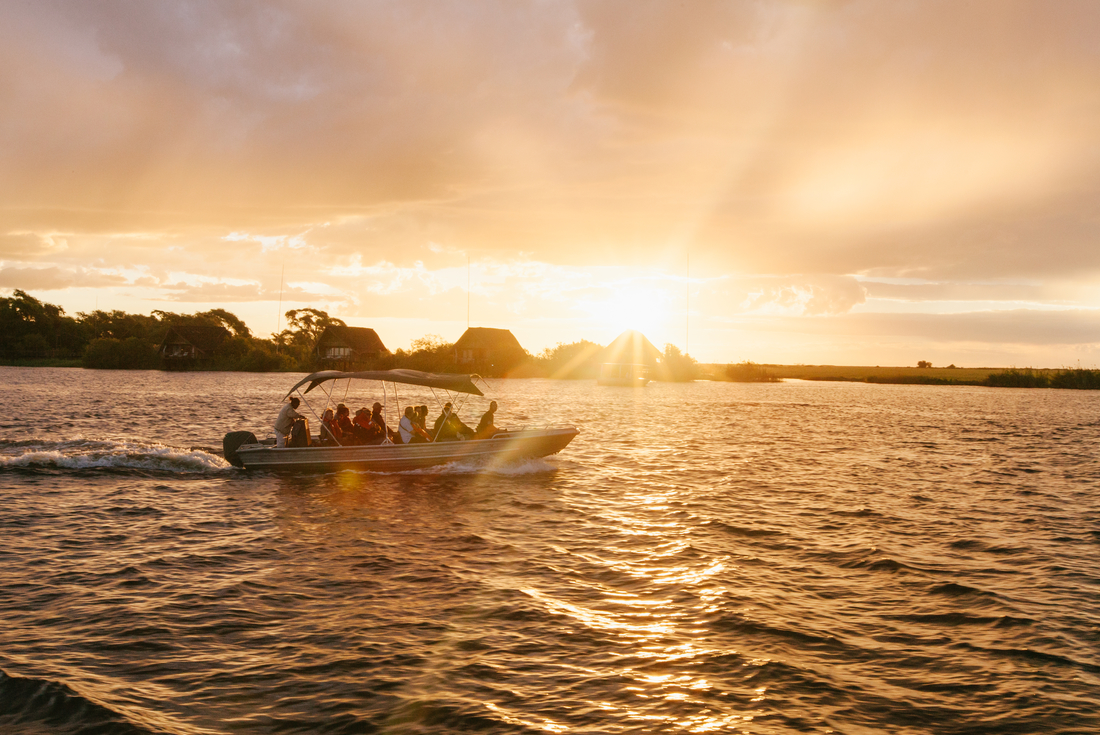
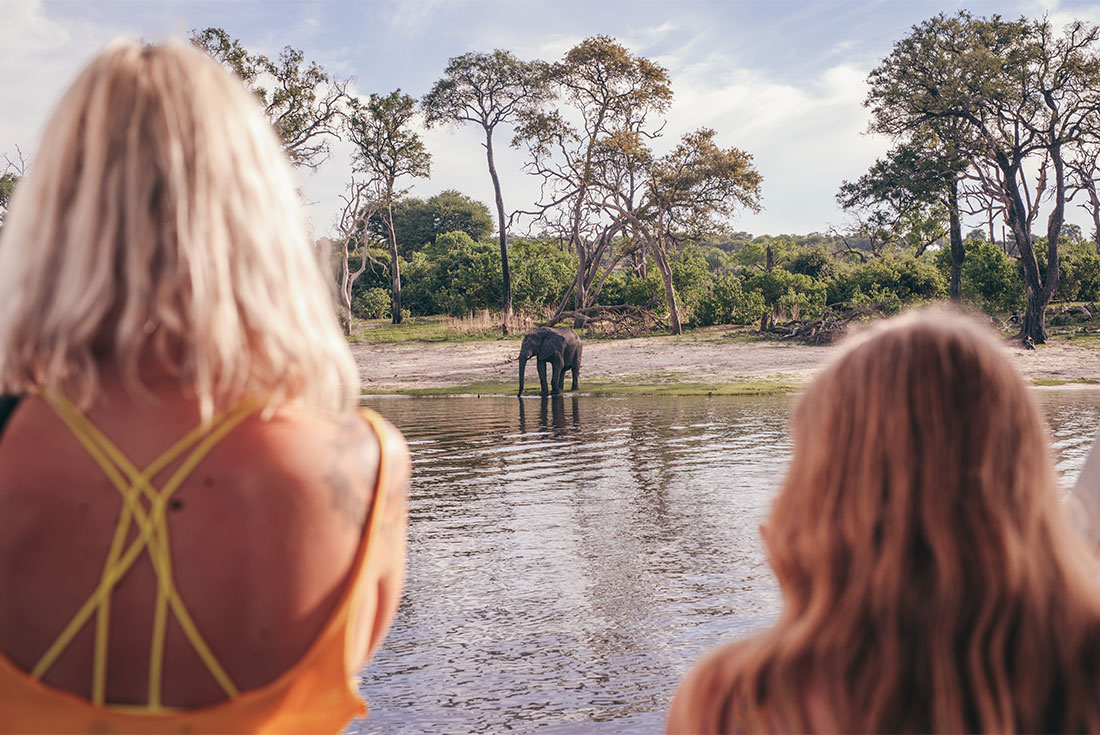
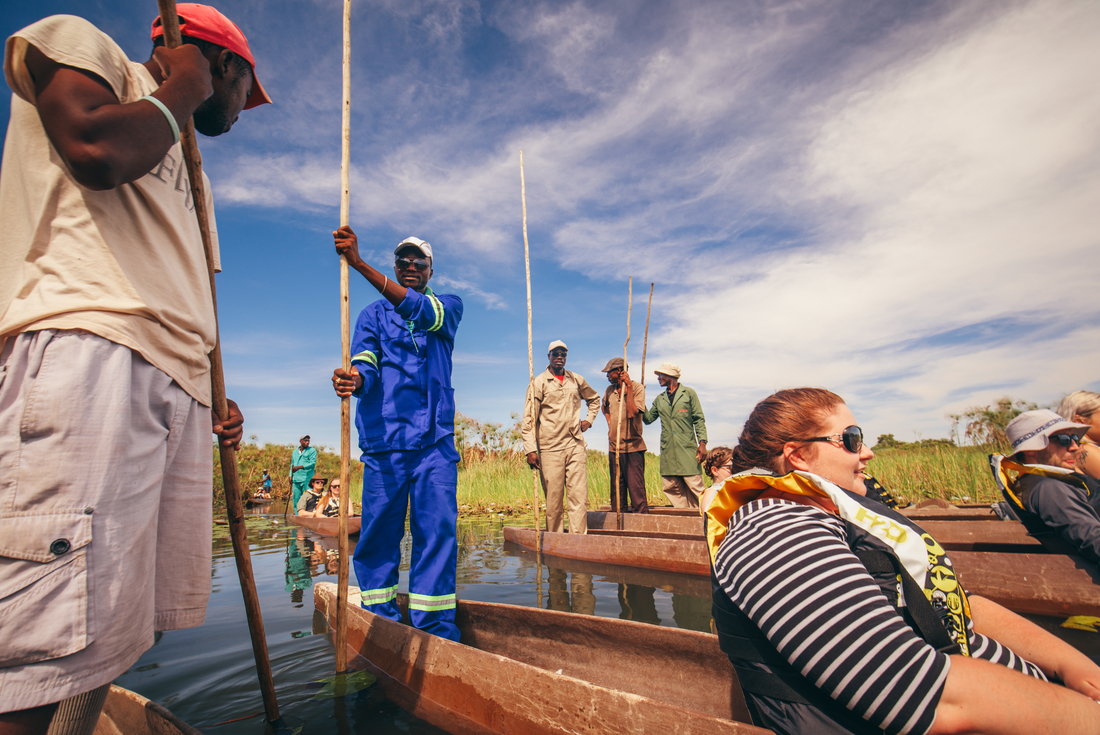
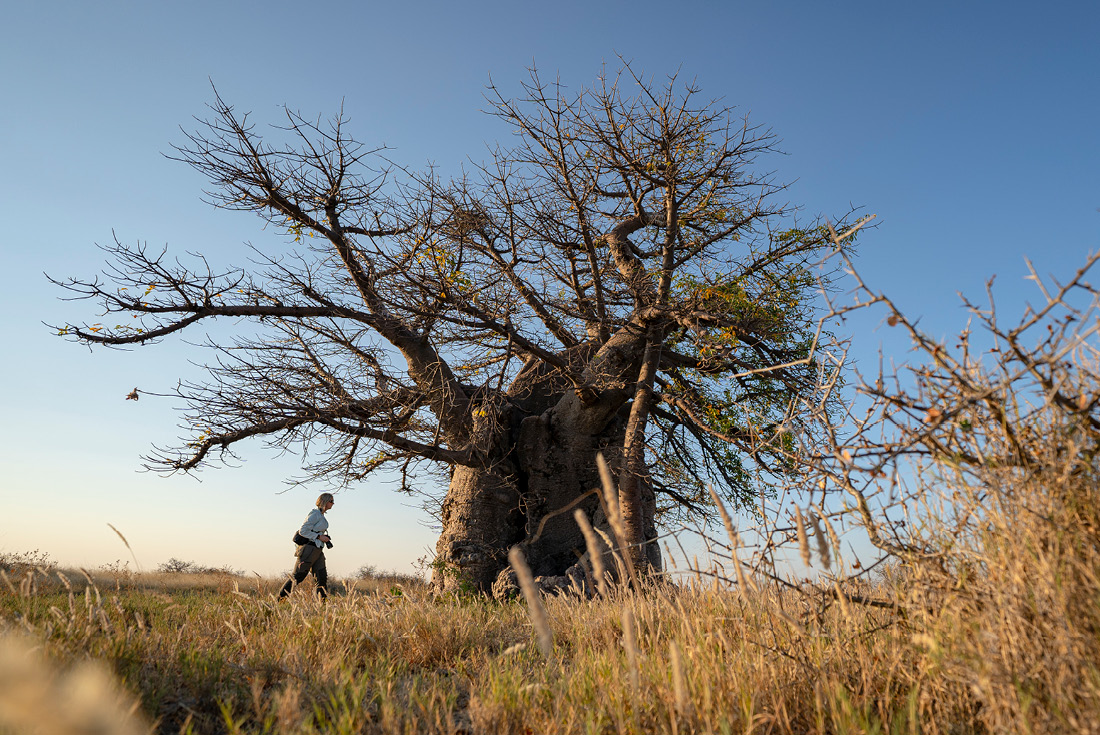
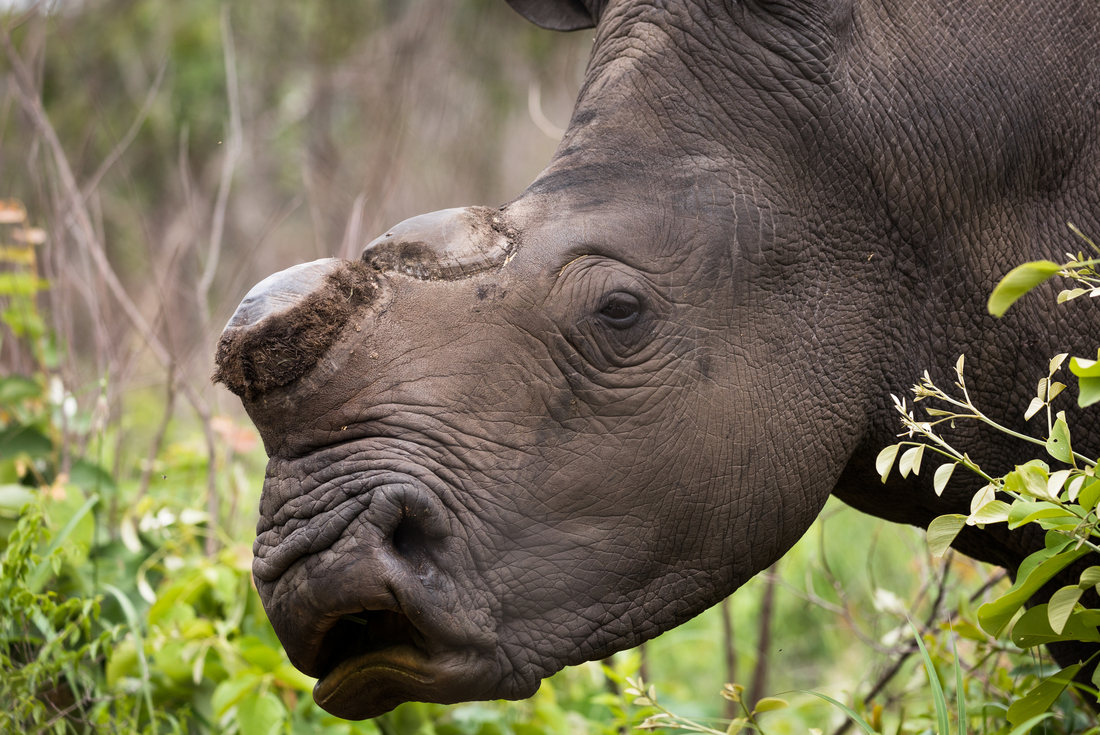
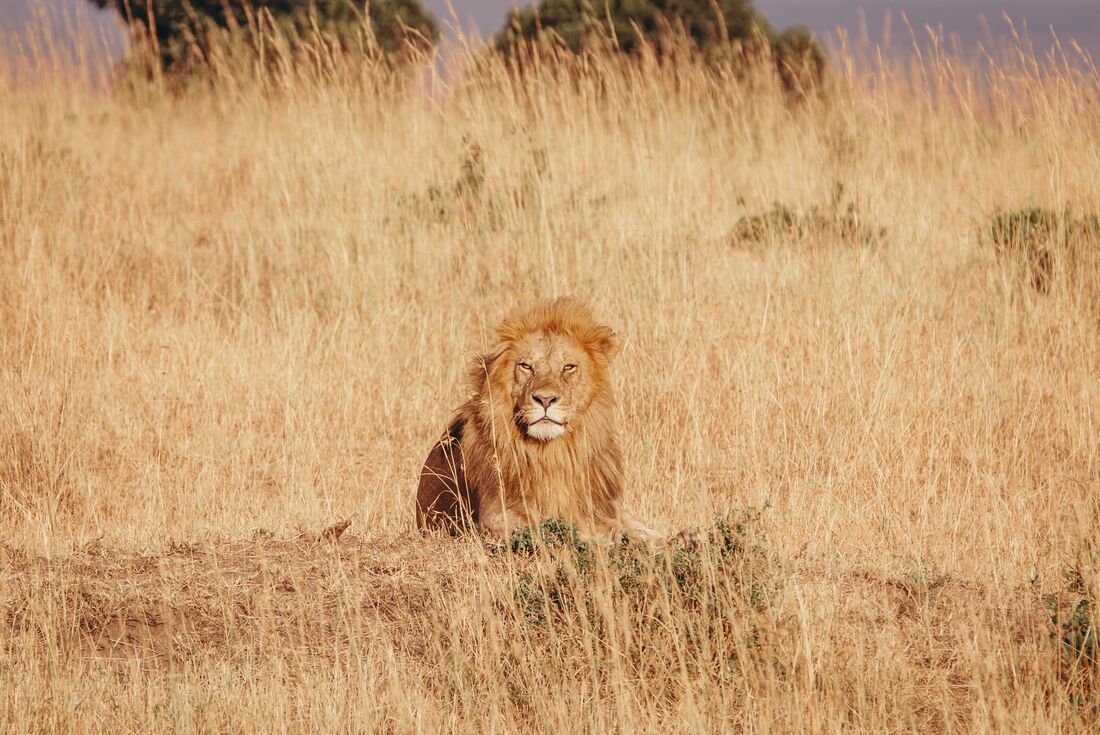
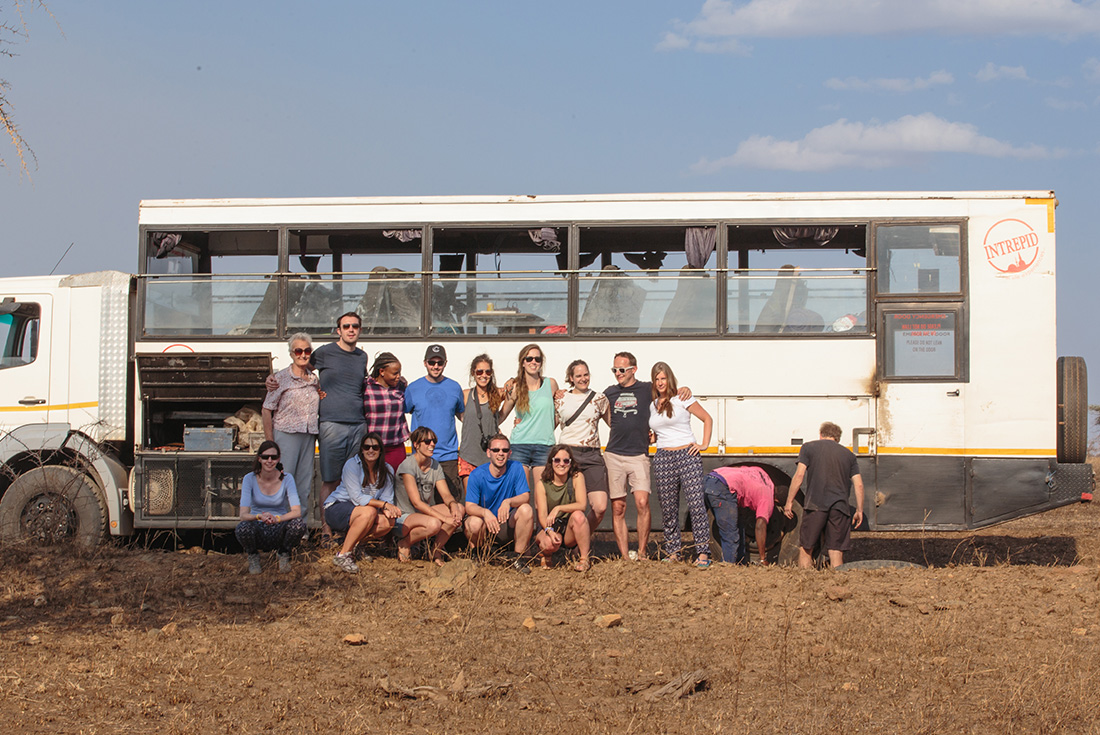
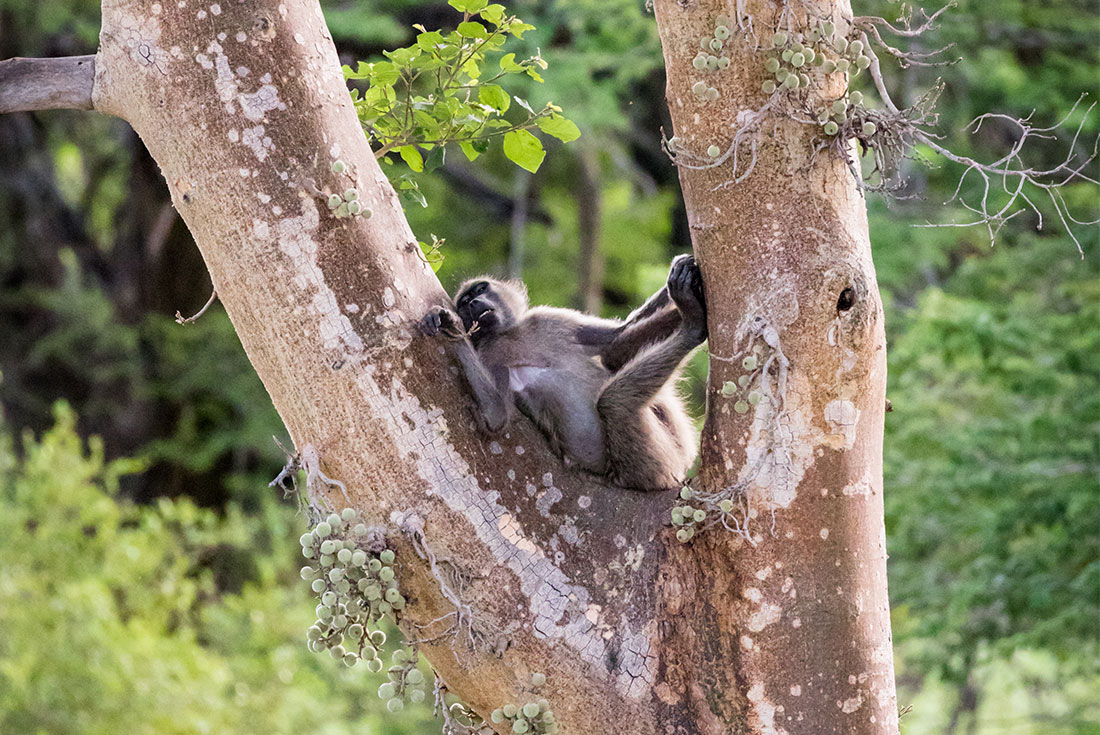
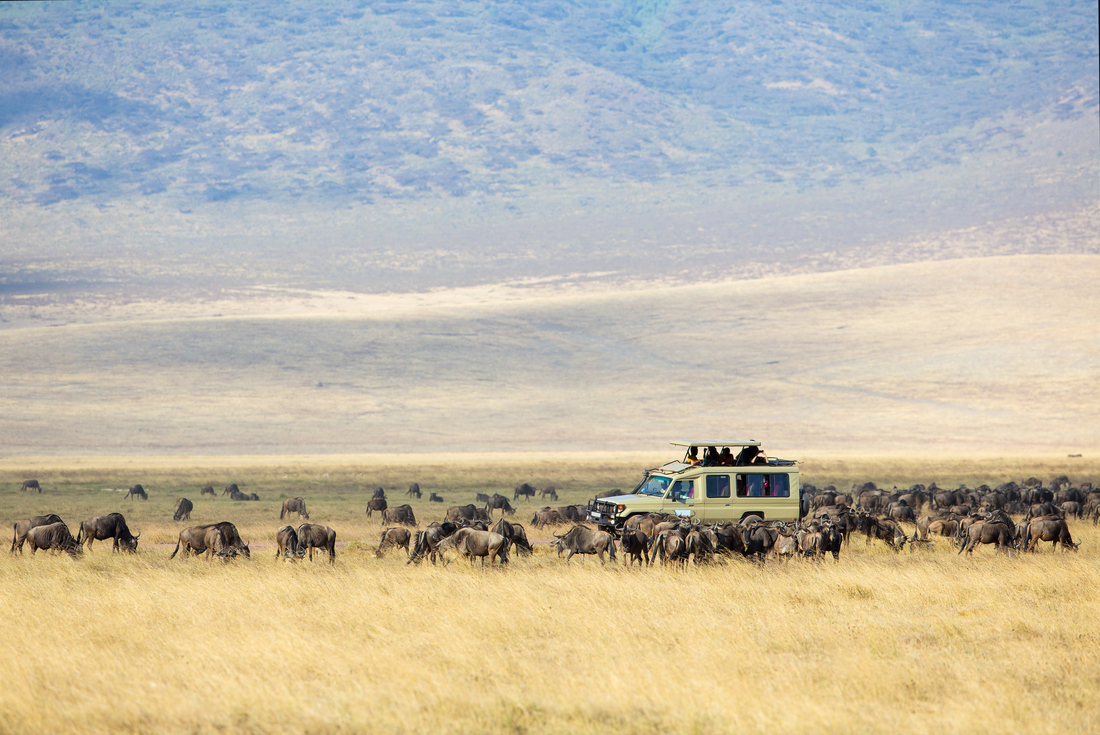
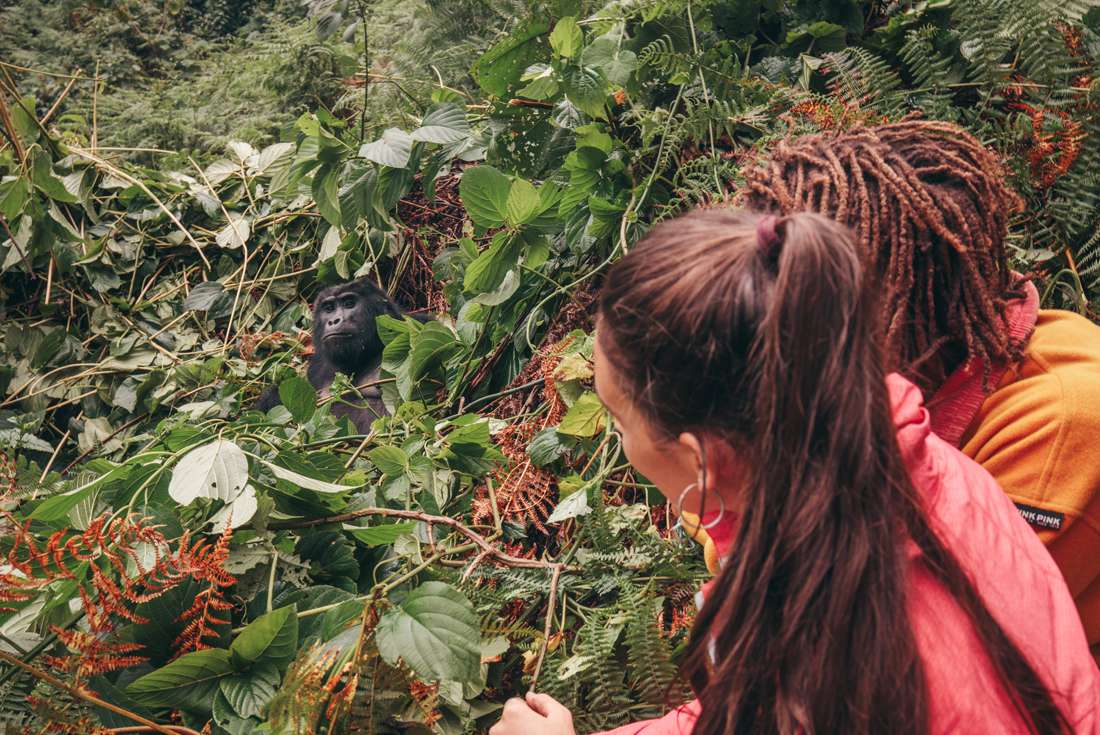
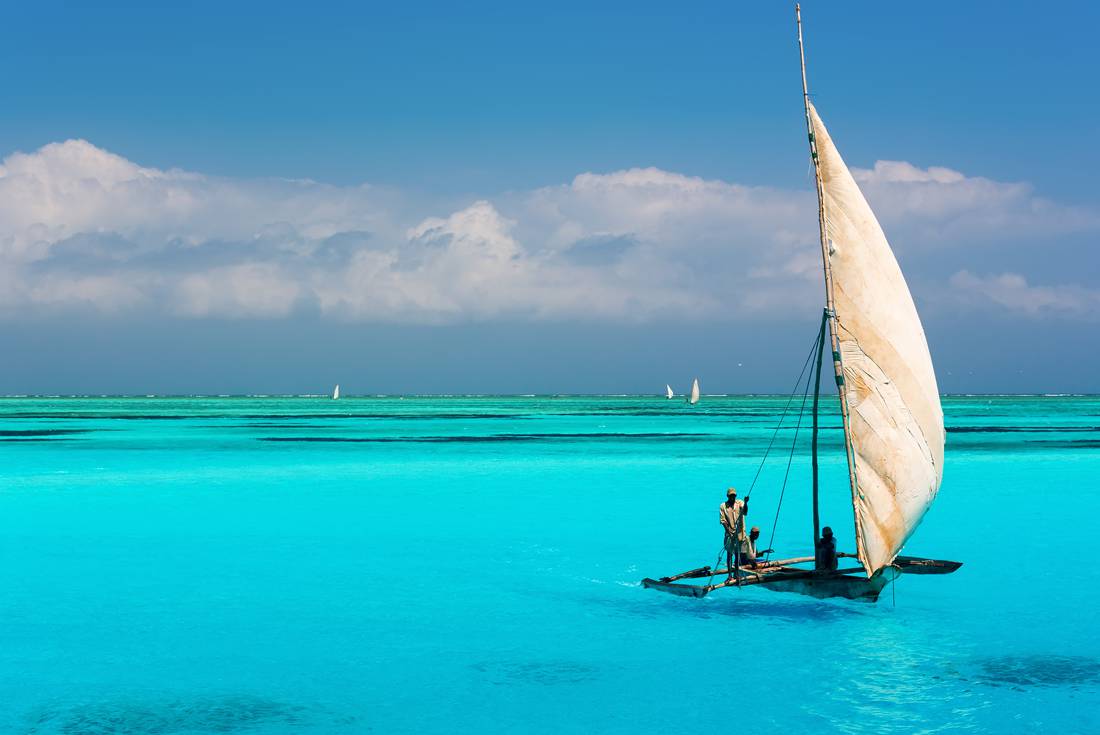
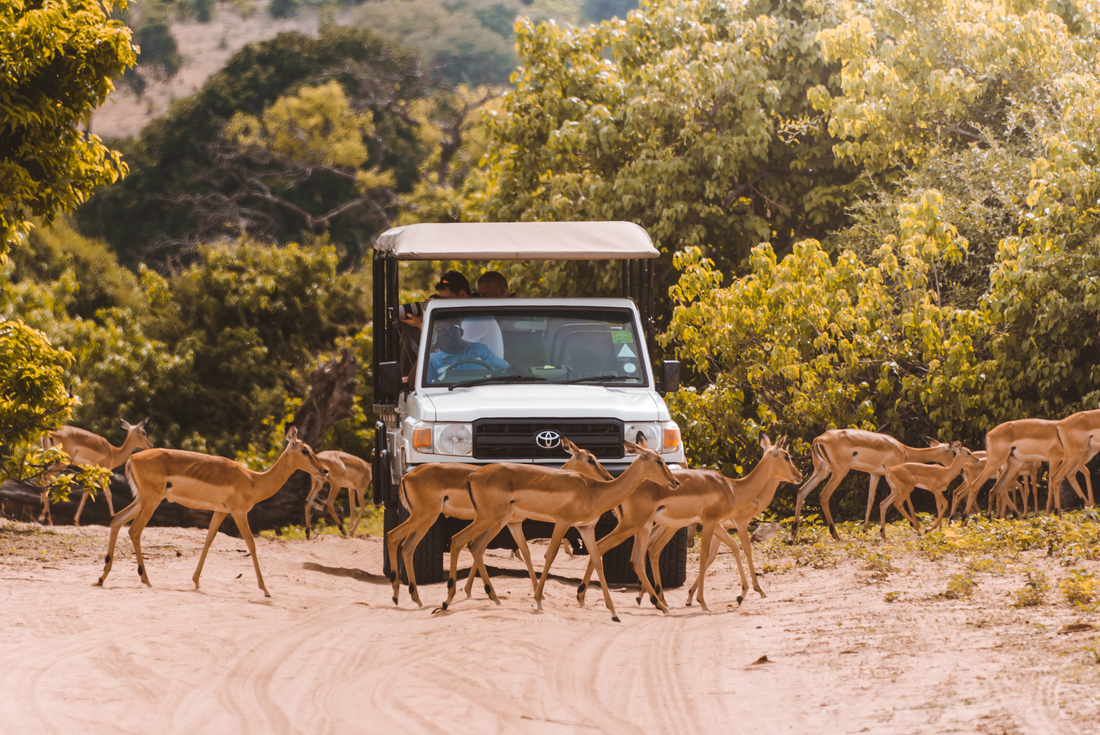
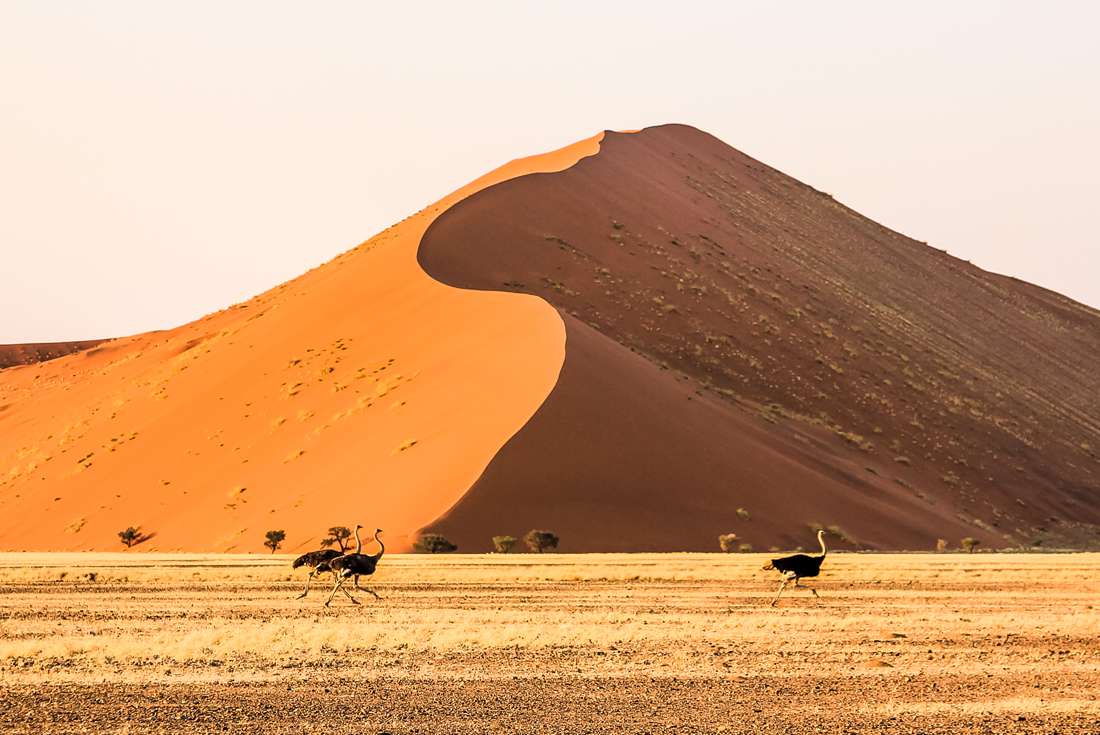
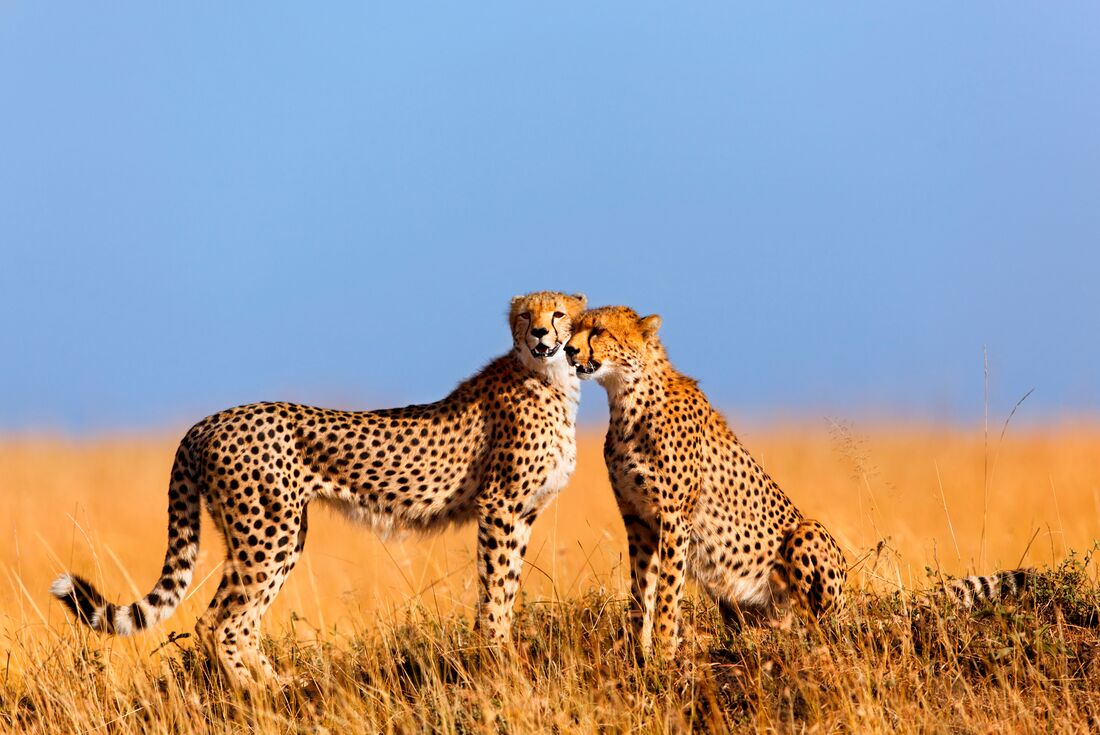
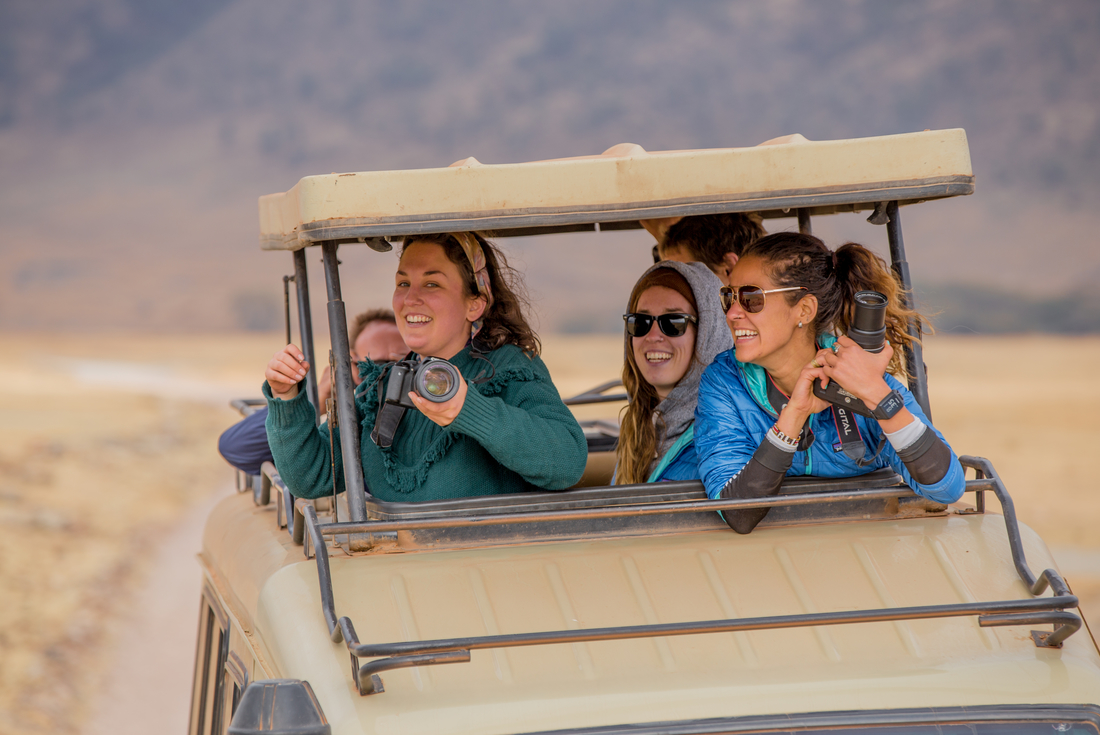
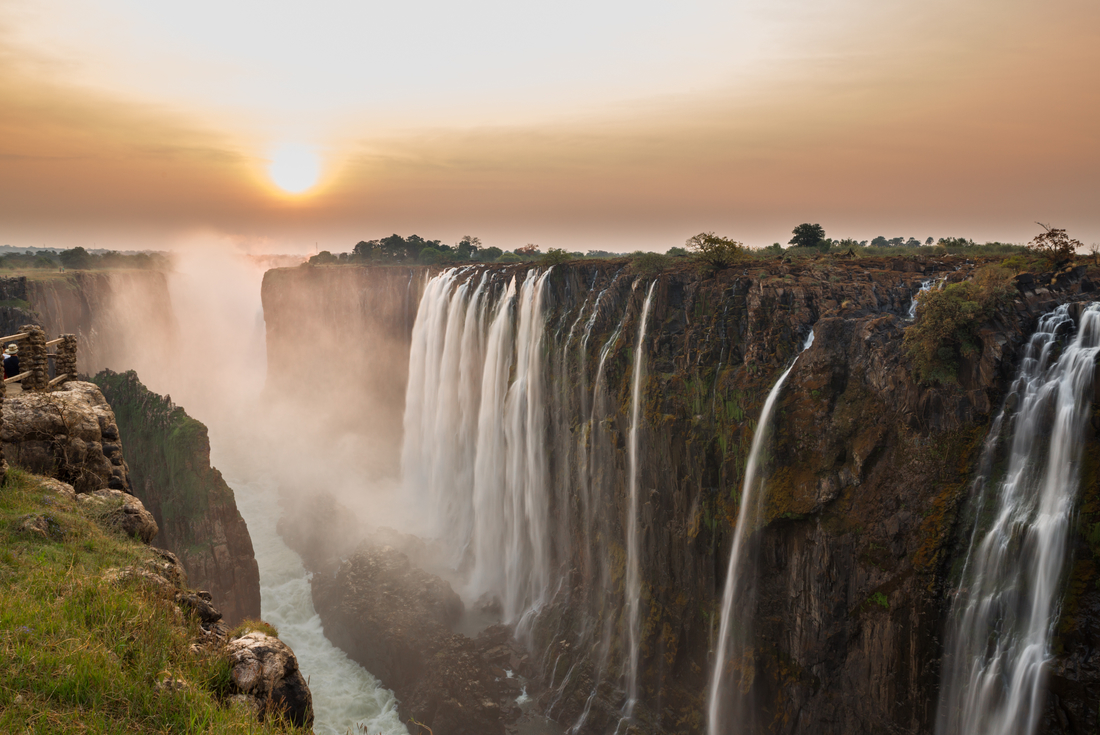
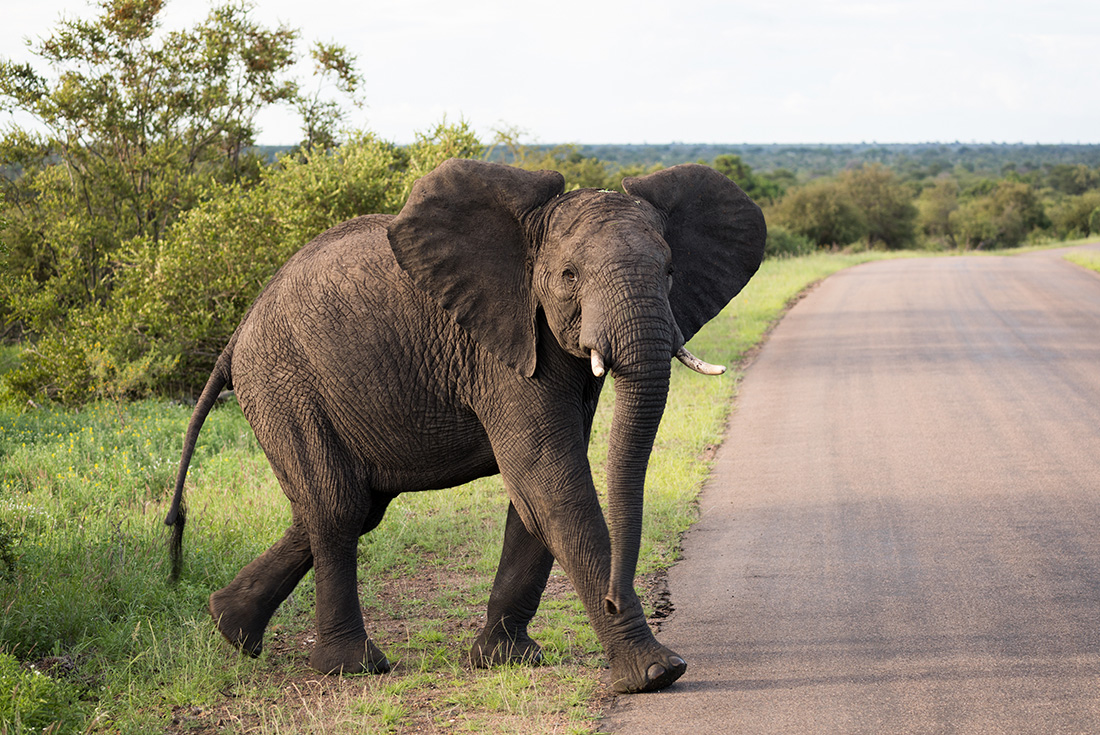
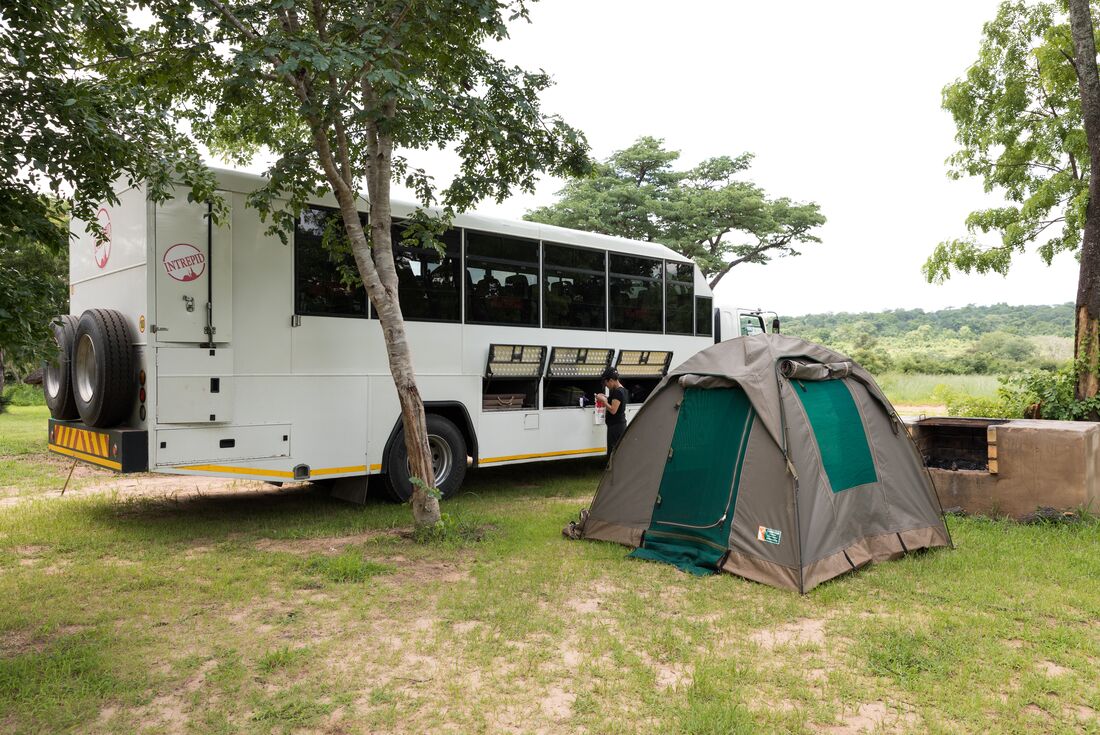
Lake Nakuru - Overland Vehicle Game Drive
Lake Nakuru - Morning Overland Vehicle Game Drive
Queen Elizabeth National Park - Overland Vehicle Game Drive
Bwindi National Park - Mountain Gorilla Permit & Trek
Kericho - Tea plantation visit
Maasai Mara - 4WD Safari
Loita Hills - Maasai Village Visit
Maasai Mara National Reserve - Full Day 4WD Safari
Ngorongoro Crater - 4x4 Game Drive
Serengeti National Park - Morning 4WD Safari
Serengeti National Park - Morning 4WD Safari
Serengeti National Park - Morning 4WD Safari
Mto Wa Mbu - Village walk & local dinner
Irente - Lushoto hike
Irente - Local lunch
Mikumi National Park - 4WD Safari
South Luangwa National Park - Morning 4WD Safari
South Luangwa National Park - 4x4 Evening Game Drive
South Luangwa - Anti-Poaching Jewelery Project
Masvingo - Great Zimbabwe Ruins guided visit
Matobo National Park - Rhino Tracking, Park Visit & San Rock Paintings
Victoria Falls - Victoria Falls Wildlife Trust (The Intrepid Foundation partner) visit
Chobe National Park - Dawn 4WD Safari
Okavango Delta - Mokoro safari
Okavango Delta - Nature walk
Okavango Delta - Mokoro Safari
Grootfontein - San Bushman cultural experience
Etosha National Park - Overland Vehicle Game Drive
Cape Cross Nature Reserve - Cape Cross seal colony
Sossusvlei - 4x4 Tour
Sesriem - Sand dunes visit
Fish River Canyon - Canyon entrance
With permits included in your trip, seek out the rare mountain gorilla on a trek through Uganda's steamy forests and spend an unforgettable hour in their presence.
Get the chance to spot and get close to all of the Big Five and more in Maasai Mara National Reserve, Serengeti National Park, Ngorongoro Crater, Etosha National Park and Chobe National Park, among others.
Join an expert guide to track rhinos on foot in Matobo National Park. Discover black and white rhinos and other game while learning about the cultural and spiritual importance of the many ceremonial sites, San paintings, and rock formations.
Chill out on the northern beaches of Zanzibar enjoying white sand and sparkling blue sea of the Indian Ocean, and cross over to Africa's Atlantic coastline for seafood spreads and dune bashing experiences.
Meet with village communities during your African adventure, including the colourful Maasai tribespeople, the hunter-gatherer traditions of the San communities, and local fishermen on Lake Malawi.
Hillpark Hotel, Lower Hill Rd , Upper Hill, Nairobi, 0100, KENYA
Holiday Inn Express Cape Town City Centre, 101 St. George's Mall , Cape Town, 8001, SOUTH AFRICA
1. A single supplement is available if you’d prefer not to share a room on this trip. The single supplement is subject to availability, and excludes Day 48 (Camping with facilities) and Days 55 to 57 (Chalet), where you will be in shared accommodation. Please speak to your booking agent for further information.
2. This trip requires a higher non-refundable deposit (AUD 1000, USD 1000, EUR 800, NZD 1250, GBP 650, CAD 1000, ZAR 8000, CHF 900) in order to secure the included gorilla permit. Please note that we need to confirm availability of a gorilla permit if you are booking within 45 days of departure. The additional deposit paid at time of booking will be credited to the final balance of your booking.
3. Optional sunrise balloon rides in the Serengeti National Park and Maasai Mara National Reserve are possible on this itinerary. Please see the itinerary above for full details of this activity. As the balloon only holds 16 people, places are limited and we recommend you book in advance. Please inquire when booking your trip to book this optional activity.
4. This trip is a combination of five of our popular itineraries. As such, the composition of your group and your leader may change throughout the journey.
5. The Zanzibar portion of your itinerary may have a few more passengers than the maximum group size of 22, as we have a crossover of trips starting and finishing in Zanzibar.
6. This trip finishes upon arrival in Cape Town on Day 63. Please do not book any flights until after 7 pm this evening.
7. Some governments currently have increased foreign travel advice around security in place for Queen Elizabeth National Park in Uganda. Please check your government’s foreign travel advice before departure and ensure your travel insurance covers all destinations and activities on your itinerary.
8. This itinerary offers an optional second gorilla trek. If you're interested, we highly recommend that you book at least three weeks in advance to secure the permit. You’re also welcome to wait and arrange the permit locally, but they are limited and availability can’t be guaranteed. Please speak to your booking agent for more details.
While we always endeavour to provide the best possible holiday experience, due to the nature of travel and the areas we visit sometimes things can and do go wrong. Should any issue occur while you are on your trip, it is imperative that you discuss this with your group leader or local representative straight away so that they can do their best to rectify the problem and save any potential negative impact on the rest of your trip.
We recognise that there may be times when your group leader or local representative may not be able to resolve a situation to your satisfaction - if this is the case, please ask the group leader or local representative to speak to their direct manager.
You may also choose to provide details in your online feedback, which we ask you to complete within 30 days of the end of your trip. Please do be aware that it is very difficult for us to provide any practical help after the trip is completed, so informing us while still travelling will give us the opportunity to resolve the issue in real-time., For general contact details please use the following page: https://www.intrepidtravel.com/contact-us, For transfers and accommodation issues, Intrepid's Kenya Office can be reached on their 24-hour number +254 758 555 556 or +254 758 555 557. , For any concerns regarding pre-booked transfers, you can reach out to the transfer company via WhatsApp at +254 725 059 773 or contact the Intrepid local team at +254 733 523 813., In case of a genuine crisis or emergency, you can reach our local office on the numbers below:
, Intrepid's Local Operator: +254 758 555 550 or +254 758 555 551, Intrepid's Local East Africa Operator: +254 758 555 550 or +254 758 555 5501, Intrepid's Local Operator: +254 758 555 550/1.
No two journeys in Africa are identical. There will be many early starts either to make use of the better safari time or to beat the morning traffic on long travel days. Be prepared for travel times to be longer or shorter than advised. Weather and road conditions can change things significantly, so embrace the detours, shortcuts, and unforgettable moments along the way., Tracking gorillas in the dense forest can sometimes be wet, muddy and uncomfortable. The terrain is by no means easy either, so it can be strenuous and often humid. But the sheer thrill of coming across a habituated group of gorillas, dominated by a great male silverback, more than outweighs any difficulty. You need to be prepared and fit enough to walk up to four hours – up and down hills. A top tip is to pack some gardening gloves to assist in any uphill climbs. See https://www.intrepidtravel.com/au/gorilla-trekking for more information., This is a participatory overland camping trip. That means you’ll be travelling with a group in a purpose-built vehicle, visiting remote communities, setting up your tent, helping out with camp chores, occasionally roughing it in the bush with no facilities, and getting the best possible views of iconic African wildlife. For more info on this style of travel, see our Africa overland page at intrepidtravel.com/africa/overland., Camping in the Serengeti National Park with no barriers between you and the animals is amazing, but it's important to heed the safety advice of your leader. You'll be briefed on arrival., The day-to-day itinerary features a selection of optional activities. Please note that this list is not exhaustive and is intended only as a guide. Prices are approximate and may change at the discretion of the local provider. All activities are subject to availability.
With permits included in your trip, seek out the rare mountain gorilla on a trek through Uganda's steamy forests and spend an unforgettable hour in their presence., Get the chance to spot and get close to all of the Big Five and more in Maasai Mara National Reserve, Serengeti National Park, Ngorongoro Crater, Etosha National Park and Chobe National Park, among others., Join an expert guide to track rhinos on foot in Matobo National Park. Discover black and white rhinos and other game while learning about the cultural and spiritual importance of the many ceremonial sites, San paintings, and rock formations., Chill out on the northern beaches of Zanzibar enjoying white sand and sparkling blue sea of the Indian Ocean, and cross over to Africa's Atlantic coastline for seafood spreads and dune bashing experiences., Meet with village communities during your African adventure, including the colourful Maasai tribespeople, the hunter-gatherer traditions of the San communities, and local fishermen on Lake Malawi.
On this trip you will be accompanied by three crew members - Group Leader, Cook and Driver who will usually be Kenyan.
Your Group Leader’s role involves organizing the overall operation and smooth-running of the trip, managing trip logistics, coordinating the tipping kitty (where applicable) and will form work groups to take turns cooking, cleaning and shopping. (From time to time your leader may drive as well)
Your Group Leader will work towards making the trip as safe and enjoyable as possible for all travellers. Intrepid trips are built around the co–operation and participation of all the group members under the supervision of the group leader. The group leader will show the group how to set up and use the equipment.
While not being guides in the traditional sense you can expect them to have a broad general knowledge of the countries visited on the trip, including historical, cultural, religious and social aspects. We also use local guides where we think more specific knowledge will add to the enjoyment of the places we are visiting, especially when tracking and identifying game - we think it's the best of both worlds. Regardless of the country of origin, our Group Leaders are chosen for their leadership skills and are wonderful ambassadors for our company and our beautiful continent and its people.
Your Cook is responsible for the cooking and will help to coordinate the work groups for preparing the meals and washing up! Cooks are also responsible for organizing food shopping (they are always happy to have you on board) and most importantly, they make sure high hygiene standards are kept at all times while camping.
Your Driver’s main responsibility is to get you to your destination safely; they are also responsible for the maintenance of the vehicles along the way.
Everyone is expected to participate and carry their share of the workload/duties, making camp chores easier. The duties Rota system is adopted where all members share in general camp duties – cooking, shopping, washing up etc.
If the whole group participates it will be quicker, easier, and more fun.
We endeavour to provide the services of an experienced leader and crew; however, situations may arise where your leader is new to a particular region or training other group leaders.
FREE TIME & OPTIONAL ACTIVITIES
Your group leader or local representative will accompany you on all included activities; however, during your trip, you'll have some free time to pursue your own interests, relax and take it easy or explore at your leisure. While your group leader or local representative will assist you with the available options in a given location, please note that any optional activities you undertake are not part of your Intrepid itinerary, and Intrepid makes no representations about the safety of the activity or the standard of the operators running them. Please use your own good judgment when selecting an activity in your free time. Please also note that your group leader or local representative has the authority to amend or cancel any part of the trip itinerary if it's deemed necessary due to safety concerns.
INTREPID SAFETY STANDARDS
For more details on the type of conditions and safety standards you can expect on your trip, please refer to Intrepid's operational safety policy on our website. We recommend that you take a moment to read through this information before travelling, and would appreciate any feedback on how well it's being implemented in the field:
www.intrepidtravel.com/safety-guidelines
, FOREIGN TRAVEL ADVICE FOR QUEEN ELIZABETH NATIONAL PARK
Some governments have increased foreign travel advice around security in place for Queen Elizabeth National Park in Uganda. In particular, the UK government has heightened travel advice in response to a recent targeted attack on UK travellers in Queen Elizabeth National Park. Insurance coverage (particularly for UK travellers) may be affected by this level of advice. Travel insurance that covers all destinations and activities within your itinerary is compulsory to join this trip. Please check your government’s foreign travel advice before departure and contact your insurance provider to ensure you have the appropriate level of coverage for travel to Queen Elizabeth National Park.
, LGBTQIA+ TRAVELLERS IN TANZANIA & UGANDA
Same-sex relationships are illegal in Uganda and Tanzania (including Zanzibar), and convictions under these laws may result in severe sentences. Same-sex public displays of affection, like holding hands or kissing in public, could lead to arrest and imprisonment. LGBTQIA+ travellers should carefully consider the risks, and refer to your government's official travel advisories for the most up-to-date advice before you travel.
, UNFENCED CAMPSITES
On some trips you will at times stay in unfenced campsites within National Parks. While this is a fantastic experience, there are a few safety rules to follow. While staying in National Parks it's important that you listen to any advice given by your group leader or local representative and the park rangers regarding responsible and safe behaviour., BILHARZIA
Bilharzia is a parasitical disease which is usually spread by swimming in contaminated water. It can be assumed that the infection is present, to a greater or lesser extent, in almost all water sources, but most especially in shallow reedy waters in the vicinity of villages.
Although the adult parasites do not themselves cause a great deal of harm, after about 4-6 weeks they start to lay eggs, which triggers an intense but usually ineffective immune response, the symptoms of which can include fever, cough, abdominal pain, and an itchy skin complaint known as safari itch. After a while the symptoms settle down and the patient is left with a sense of feeling tired all the time.
PASSPORT
You’ll need a valid passport to travel internationally and most countries require your passport to have a minimum of 6 months validity, so remember to check the expiry date.
We need your passport information to get everything ready for your trip so it’s important that the information on your booking matches your passport exactly. Please take care to provide the correct details. We recommend carrying a copy of the photo page of your passport while travelling and leaving a copy at home with family or friends.
VISAS & ENTRY REQUIREMENTS
Many countries require a visa and obtaining the correct visa for your trip and any countries you may transit through is your responsibility. We recommend you check your visa requirements as soon as you have booked your trip. This will ensure you have time to prepare your documents and for your visa application to be processed. You can check the entry requirements for your nationality on your government's foreign travel advisories, consular websites or on our page here: www.intrepidtravel.com/visa-entry-requirements, INFORMATION FOR VISA APPLICATIONS:
If you require an address for Visa Applications in Tanzania, please use:
Kibo Palace Hotel
PO Box 2523
Old Moshi Road
Arusha - Tanzania
Phone: +255 272544472
If you require a contact number for Visa Applications in Tanzania, please use:
Intrepid Tanzania: +255 758 509 579 / +255 787 906 871
If you require host contact information for Visa Applications in Tanzania, please use:
Host name/ Company Name: Intrepid Travel Tanzania Ltd
Company Registration no: 77032
Physical address: P.O. Box 6101, Arusha
Email: opseastafrica@intrepidtravel.com
Phone Number: +255 758 509 579 / +255 787 906 871
If you require an address for Visa Applications in Zambia, please use:
Eureka Camping Park
10kms South of Lusaka City centre, on the Kafue Road,
Tel: (+260 211) 272351 or 278110
Fax: (+260 211) 272351
E-mail: eurekacamp.zm@gmail.com
LETTER OF INVITATION
KENYA / TANZANIA / RWANDA:
If you require a letter of invitation or a list of hotel confirmations, please contact your booking agent, and we will issue one tailored to your specific tour and departure.
UGANDA:
If you require a letter of invitation or a list of hotel confirmations, please contact your booking agent, and we will issue one tailored to your specific tour and departure.
For more information, please visit - https://visas.immigration.go.ug/#/help/visa
MALAWI:
If you need a letter of invitation or hotel confirmation for your visa application, please contact your booking agent.
Travellers should contact evisa.support@immigration.gov.mw to apply for visa letters.
BORDER CROSSINGS ON THIS TRIP:
Exit Kenya - Malaba (Day 4)
Enter Uganda - Malaba
Exit Uganda - Busia (Day 13)
Enter Kenya - Busia
Exit Kenya - Namanga (Day 17)
Enter Tanzania - Namanga
Exit Tanzania - Kasumulu (Day 30)
Enter Malawi - Songwe
Exit Malawi - Mchinji (Day 33)
Enter Zambia - Mwami
Exit Zambia - Chirundu (Day 37)
Enter Zimbabwe - Chirundu
Exit Zimbabwe - Kazungula (Day 44)
Enter Botswana - Kazungula
Exit Botswana - Ngoma (Day 46)
Enter Namibia - Ngoma
Exit Namibia to Botswana - Muhembo (Day 47)
Exit Botswana to Namibia - Mohembo (Day 49)
Exit Namibia to South Africa - Noodoewer (Day 62)
Enter South Africa - Vioolsdrift, Starting October 1, 2024, all foreign non-residents travelling to Zanzibar and its surrounding islands are required to purchase mandatory Inbound Travel Insurance from the Zanzibar Insurance Corporation. The cost is USD 44 per person, and USD 22 for children aged 17 and under. This insurance applies to all travellers, regardless of any existing coverage, and is valid for stays of up to 92 days.
You can apply and pay for the insurance before departure using the following link: https://visitzanzibar.go.tz/
, CHILDREN TRAVELLING TO BOTSWANA
If you’re travelling to Botswana with a person under the age of 18, then you need to provide a certified copy of the child’s full unabridged birth certificate in order to enter the country. This means the one listing the child’s details and both parents’ details. The short birth certificate which only lists the child’s details won’t be accepted.
Additionally, if the child is travelling with only one parent, with neither biological parent, or is unaccompanied, then they must provide an affidavit of consent of the parent(s) that are not travelling to prove that the trip is made with both parents' consent. Please contact your nearest Botswanan Embassy if you have further questions regarding this., NAMIBIA:
If you require a letter of invitation or list of hotel confirmations for your visa application, please contact your booking agent, and we will issue one tailored to your specific tour and departure.
Information not available.
Validity: 01 Jan 2026 to 31 Dec 2026
GENERAL HEALTH
All travellers need to be in good physical health in order to participate fully on this trip. For the safety and wellbeing of yourself and others, if you are unwell prior to travelling, please stay at home and contact us to make alternative arrangements.
When selecting your trip please make sure you have read through the itinerary carefully and assess your ability to manage and enjoy our style of travel. Please note that if in the assessment of our group leader or local representative a traveller is unable to complete the itinerary without undue risk to themselves and/or the rest of the group, we reserve the right to exclude them from all or part of a trip without refund.
You should consult your doctor for up-to-date medical travel information or for any necessary vaccinations before departure. We recommend that you carry a first aid kit as well as any personal medical requirements in their original packaging as they may not easily be obtained while travelling. If you are carrying medication, ensure you check your government's foreign travel advice for any local restrictions or requirements.
, YELLOW FEVER:
A valid international certificate of vaccination against Yellow Fever is required in many countries if you are arriving from a country with risk of yellow fever (eg. Kenya). You may need to present this on arrival at the airport or border crossing. Some countries will refuse entry if you are unable to present your certificate. It's also quite common for your home country to request a Yellow Fever certificate on your arrival back home.
It is your responsibility to check with your doctor well in advance of leaving home about the Yellow Fever requirements for the countries you'll be visiting.
, MALARIA & DENGUE
Malaria and Dengue are mosquito-borne diseases commonly found in many parts of Africa. Before you travel, discuss your itinerary with a doctor and monitor your government foreign travel advice for up-to-date information on risk levels in particular areas. To reduce your risk of mosquito bites, protect yourself by using insect repellent and wearing long, loose, light-coloured clothing.
Malaria symptoms typically appear 7–30 days after infection and may include fever, chills, headache, and fatigue. Doctors can prescribe medication to help prevent Malaria, so it’s important to consult your healthcare provider before travelling.
Dengue symptoms generally emerge 4–10 days after being bitten. These may include high fever, severe headache, joint and muscle pain, nausea, and rash. As there is no specific medication for Dengue prevention, avoiding mosquito bites is key.
If you develop symptoms of Malaria or Dengue while travelling or after returning home, seek medical attention straight away.
, TSETSE FLY:
It is best to avoid dark coloured clothes such as blue and black while on safari. These colours can attract the biting tsetse fly., DRINKING WATER:
As a rule we recommend you don't drink tap water, even in hotels, as it contains much higher levels of different minerals than the water you may have at home. For local people this is not a problem as their bodies are used to this and can cope, but for visitors drinking the tap water can result in illness. Generally this isn't serious, an upset stomach being the only symptom, but it's enough to spoil a day or two of your holiday. Bottled water is widely available and your leader can recommend safe alternatives when available. Water consumption should be about three litres a day. Rehydration salts, motion sickness tablets, and diarrhoea blockers are available from many pharmacies., MPOX
Mpox is a rare infectious disease mostly found in tropical rainforest areas of Central and West Africa. There are currently no local or worldwide travel restrictions related to Mpox and the risk to travellers remains low. Some countries may have Mpox screening measures in place, including body temperature checks, at points of entry.
Travellers in countries where Mpox has been detected are advised to take precautions such as minimising potential of skin to skin contact in crowded areas, washing hands thoroughly and frequently, and maintaining good personal hygiene.
By travelling on an Overland trip you have chosen a participation camping tour. This means that you will be helping your cook prepare meals for the group. You may also get the chance to help with the shopping.
Your cook will come up with meal ideas and quantities needed for large groups. Participating in the camp is usually done on a duty roster system with group of 5 or 6 people (depending on group size) having a different camp job each day.
If you have any dietary requirements please tell us at the time of booking, and also remind your crew at your welcome meeting.
A typical camp breakfast might be toast with spreads, cereal, something hot such as eggs or pancakes, as well as tea and coffee. Lunch is almost always a sandwich with healthy salad and assorted fillings, sometimes with fruit to follow. On occasion there will be the opportunity to buy your lunch to allow you try the local cuisine or provide some variety to sandwiches. Dinner might be a BBQ, rice dish or pasta dish and there is always the chance to try some African food such as ugali and stew.
Clean drinking water is provided on your overland truck and can be accessed at all times. Your crew will use this to cook and provide cordial at meal times. Please do not hesitate to use this water to minimise the consumption of plastic water bottles. Soft drinks and alcoholic beverages are not part of included meals.
One thing is sure - you definitely won't go hungry or lose weight on your safari! When you aren't camping you will have the freedom to decide where, what and with whom you eat.
SPENDING MONEY
When it comes to spending money on the trip, every traveller is a little different. You know your spending habits better than we do, so please budget an appropriate amount for things like optional meals, drinks, shopping, optional activities, and laundry. Make sure you have read the itinerary and inclusions thoroughly so you know what is included in the trip price and what you may need to pay for while travelling. , CREDIT CARDS, ATMS AND EXCHANGING MONEY
ATMs are available in most major towns and cities and even some campsites. Withdrawal limits vary between countries, sometimes as low as USD 100 per day, and will differ from your withdrawal limit at home. Smaller shops and restaurants only accept cash. Foreign currency is easily changed at exchange bureaus, who generally offer the best rates. If you are bringing USD cash we strongly recommend large bills in good condition, 2013 series onwards only. Any old or damaged notes may not be accepted.
Credit cards are generally accepted in tourist shops and some restaurants across Africa. Visa and Mastercard are preferred.
If you're on a multi-country trip, your leader will be able to give you an approximate idea of how much money you may need in each country.
, MEALS NOT INCLUDED
Please review your Itinerary for which meals are included. For meals that aren’t included, we recommend budgeting USD 15 – 35 per lunch and USD 20 – 50 per dinner., BOTSWANA
The unit of currency is the pula (BWP), which is divided into 100 thebe. The pula is a strong currency and any excess currency can easily be exchanged in Johannesburg. Banks, hotels and major curio shops in Botswana accept some major international credit cards, although camps and lodges in the region will only accept payment for bar bills, laundry, etc in local or foreign currency (cash). We recommend you travel with US dollars., MONEY IN ZIMBABWE:
Zimbabwe has its own currency, the Zimbabwe dollar. However, obtaining this currency can be challenging, and there can be long lineups to exchange money at banks. On-ground expenses such as lunches and market purchases must be settled in Zimbabwe dollars or by using a credit card. Visas on arrival can be paid in USD and most optional activities require payment in USD. Make sure to bring small denominations as immigration officers and local businesses may not be able to provide change. It's important to plan your travel expenses in advance and bring enough USD into the country to cover your stay. Your tour leader or local representative will be available to offer guidance on this issue if needed.
, TIPPING
Tipping can be an appropriate way to recognise great service when travelling. While it may not be customary in your home country, it is an entrenched feature of the tourism industry across many of our destinations and is greatly appreciated by the people who take care of you during your travels. It is always best to avoid tipping with coins, very small denomination notes, or dirty and ripped notes, as this can be regarded as an insult rather than the goodwill gesture it is intended to be., YOUR GROUP LEADER OR LOCAL REPRESENTATIVE
Tipping your group leader or local representative is highly appreciated if you feel they’ve provided outstanding services throughout your trip. The amount is entirely a personal preference; however, as a guideline, the recommended amount is 4-7 USD or EUR per traveller per day (in a currency relevant to your destination). Of course, you are free to tip more or less as you see fit, depending on your perception of service quality and the length and involvement of your group leader or local representative on your trip., ADDITIONAL CREW
You may have additional crew on your trip, such as a local guide, driver or cook. We recommend tipping each person USD 2 – 4 per person per day (in a currency relevant to your destination)., OPTIONAL TIPPING KITTY
On Day 1 of your trip, your group leader or local representative may discuss with you the idea of operating a group tipping kitty, whereby everybody contributes an equal amount and your group leader or local representative distributes tips for drivers, local guides, hotel staff and other services included on your trip. Participation in this kitty is your choice, and you are welcome to manage your own tipping separately if you prefer.
The group leader or local representative will keep a running record of all monies spent, which can be checked at any time. Any funds remaining at the end of the trip will be returned to group members. These tips to suppliers are for great service and are in addition to the regular costs paid for the services supplied.
The tipping kitty excludes tips for your group leader or local representative, and providers of optional activities., From Nairobi to Stone Town, we recommend budgeting approximately USD 10 per traveller per week to tip local service providers for activities included in this trip. This doesn’t include a tip for your leader or crew.
Optional tipping kitty from Stone Town to Victoria Falls: USD 10 per person (can be paid in local currency).
Optional tipping kitty from Victoria Falls to Cape Town: USD 22 per person (can be paid in local currency)., CONTINGENCY FUNDS
We try to plan for every eventuality, but there are still some things beyond our control. We reserve the right to change an itinerary after departure due to local circumstances or a Force Majeure Event. In such emergency circumstances, the additional cost of any necessary itinerary alterations will be covered by you. Please note we are not responsible for any incidental expenses that may be incurred as a result of the change of itineraries including but not limited to visas, vaccinations or non-refundable flights. Make sure you have access to an extra US$500 for emergencies (e.g. severe weather, natural disasters, civil unrest) or other events that result in unavoidable changes to the itinerary (e.g. transport strikes or cancellations, airport closures). Sometimes these things necessitate last-minute changes to enable our trips to continue to run, and as a result, there may be some extra costs involved. The recommended amount is listed in USD for the relatability of universal travellers, however, local currency may be needed once in the country to cover these costs., COMMISSIONS
Intrepid understands that the receipt of commissions in exchange for recommending particular shops or services is ingrained in the culture of the tourism industry. For this reason, we have established a centralised fund for contributions from recommended suppliers so these can be collected and distributed back into the business. Actively managing the receipt of commissions helps us maintain the level of quality you expect on one of our trips. Travel is always an adventure so Intrepid cannot explicitly guarantee the quality of a product but we aim to provide the best value trips in the market. Please let us know via the feedback form completed after your trip if we are successfully meeting - or exceeding - this objective.
GORILLA TREK:
Tracking gorillas in the dense forest can sometimes be wet, muddy and uncomfortable. You will need a comfortable pair of waterproof hiking boots. Some of the foliage in the forest has sharp spikes and can be prickly. A typical gardening glove with a hard surface on the palm will make it easier to grab onto trees and bushes as you pull yourself up the hillside. It's also a good idea to pack a pair of long socks so that you can tuck your trousers into them and avoid any ants or insects getting to your ankles. Your rain jacket for the trek should be a neutral or dark colour as bright-coloured clothes are not permitted in the park.
You are required to wear a surgical mask while within a 10-metre (11-yard) proximity to the gorillas. Surgical face masks are provided on the ground by the National Park for a cost, or you may bring your own. For more information on how surgical masks are keeping gorillas safe, please see our Responsible Travel section.
You will be provided with a walking stick and the option to hire a porter who can carry your day pack and assist you on the trek. It costs 20 USD to hire a porter, plus an optional tip. Hiring a porter not only makes your trek easier but also encourages local communities to embrace gorilla conservation and tourism. Some porters are ex-poachers who now recognize the value in gorilla conservation practices., LUGGAGE LIMIT
The luggage weight limit is a maximum of 20kg per person, but we recommend packing as lightly as possible. Day bags with items you'll need throughout the day/drives (phones, money, sunscreen, water bottles, etc.) can be stored near your seat on the overhead shelf or, on some trucks, in pockets in the seat in front of you. Each traveller will have a locker on the truck to store valuables, such as passports and items that you don't need during the drive. Locker sizes vary by truck, with an average size of 18 inches wide, 10 inches high, and 26 inches deep. You will need to bring your own lock. We recommend a 20-30 mm-sized padlock. Larger luggage can be stored in the compartments under the truck, but you won’t have access to it until you set up camp. We recommend backpacks or duffel bags, as large framed suitcases can be difficult to fit, especially when the truck is at full capacity. Please contact your booking consultant if you think you will have issues with this luggage limitation.
GORILLA TREKKING SPECIFICS
- Tracking gorillas can be wet, muddy, and physically challenging with sharp, prickly foliage and steep hillsides.
- You must wear a surgical mask within 10 metres of the gorillas. For more info on how masks help protect gorillas, see our Responsible Travel section.
- A walking stick will be provided, and you can hire a porter for 20 USD (plus tip) to carry your day pack and assist with the trek. Hiring a porter supports local communities and encourages gorilla conservation.
CLOTHING & FOOTWEAR
- Waterproof hiking boots for navigating wet, muddy, and uneven terrain on gorilla trek
- Gardening gloves for easier grip on trees and bushes while trekking
- Long Socks to tuck pants/trousers into and protect against ants or insects
- Neutral or dark-coloured rain jacket (bright colours are not permitted in the park
- Surgical face mask (provided on-site or bring your own)
- Lightweight, long shirts and pants for protection against the sun and insects
- Comfortable clothing for hot weather; shorts, t-shirts, activewear
- Closed-toed comfortable walking shoes to protect your feet in wilderness areas
- Sandals suitable for wearing during water-based activities
- Fleece or jumper/sweater for cooler mornings/evenings
- Sun protection – sunglasses and securable sunhat
- Swimming costume
- Sarong, scarf, or buff for dusty roads and cooler temps
- Nightwear, especially if travelling on twin-share
- Beanie
TOILETRIES & PERSONAL CARE
- Sunscreen - biodegradable, reef-safe, and waterproof if available
- Biodegradable shampoo, conditioner, soap, detergent, etc.
- Toiletries - toothbrush, toothpaste, razor, nail clippers, etc.
- Towel or travel towel
- Tropical strength insect repellent
- Antiseptic hand sanitizer
- Personal medical kit. Your guide will carry a large kit, but we recommend you carry items such as mild painkillers, electrolytes, anti-diarrhea, antibacterial gel, wet wipes, after-sun, band aids/plasters, etc.
ELECTRONICS
- Power bank or spare batteries
- Charging cords and necessary adapters for the countries you're visiting
- Head torch (recommended) or flashlight
LUGGAGE & SLEEPING GEAR
- A smaller backpack to take with you on day excursions and gorilla trekking
- Travel pillow
- Earplugs
OTHER ITEMS
- Reusable water bottle (min 1 litre), preferably filtered
- Camera
OPTIONAL EXTRAS
- Reusable dry bags to keep your belongings and clothes dry
- Water purification tablets
- Binoculars
TOP TIPS
- Ex-military or military style clothing and equipment is NOT recommended.
- Pack layers to add or remove as the temperatures fluctuate throughout the day.
- Wear neutral-colored clothing while on safari to blend in with the environment and avoid disturbing wildlife.
- Account for your personal temperature preferences—if you tend to run hot or cold, pack accordingly to stay comfortable.
LAUNDRY
Some campsites located on hotel grounds offer laundry services, but this is not guaranteed due to limited time and availability on overland tours in Africa. Be prepared to hand-wash your clothes at campsites, as most provide basic facilities for this purpose. We recommend bringing non-polluting, biodegradable soap and a roll of string to create a clothes drying line. If you arrive late in the afternoon or encounter poor weather, it may not be possible to dry your clothes completely. Laundry services may also be available at your start/end hotel for a fee.
VALUABLES
Please try to avoid bringing unnecessary valuables, and use your hotel safe and the safe on the overland truck to store the bulk of your money, passport, and airline tickets. It’s also a good idea to purchase a money belt or pouch that is easily hidden. We strongly recommend that you photocopy all important documents, e.g. air tickets, passport, vaccination certificate, etc. and keep the copies separate from the originals. While not valid, a photocopy makes it very much easier to obtain replacements if necessary.
POWER
Our overland vehicles are equipped with UK socket power outlets at each seat to use while on the road. Some camps will have powered sites to charge your devices when not on the road. We also recommend power banks and multi-country power converters.
DRESS CONSIDERATIONS FOR WOMEN AND GENDER-DIVERSE TRAVELLERS
In certain parts of Africa, we recommend women and gender-diverse travellers dress in a way that respects local customs and traditions. While there’s a wide range of cultural practices, we recommend packing a few items like skirts or shorts that reach just above the knee, tops that cover the shoulders, or cover-ups when stepping off the beach in coastal areas. Your leader will be able to advise you on when it is appropriate to dress more conservatively.
, PLASTIC BAG BANS
To reduce single use plastic, many countries in Africa have banned the import and use of plastic bags. Your luggage may be searched upon entry. Exceptions will be made for plastics that are essential for health and hygiene. We recommend obtaining reusable waterproof bags prior to entry for things like dirty laundry.
Cape Town has warm, dry summers (December to February) with temperatures from 15°C to 26°C (59°F to 79°F) and cooler, wet winters (June to August) between 7°C and 18°C (45°F to 64°F).
Namibia is hot in summer (November to March), with temperatures ranging from 20°C to 35°C (68°F to 95°F) and cooler, dry winters (June to August) between 5°C and 25°C (41°F to 77°F).
The Okavango region of Botswana is hot in summer (November to March), with temperatures from 25°C to 35°C (77°F to 95°F) and cooler winters (June to August) between 5°C and 25°C (41°F to 77°F).
Zimbabwe experiences warm summers (December to February) with temperatures between 20°C and 33°C (68°F to 91°F) and cooler winters (June to August) ranging from 4°C to 25°C (39°F to 77°F).
Zambia experiences hot, wet summers (November to April) with temperatures between 25°C and 35°C (77°F to 95°F), and mild, dry winters (May to August) when daytime temperatures average 15°C to 27°C (59°F to 81°F) and nights can be cool.
Malawi has warm, wet summers (November to March) with temperatures ranging from 20°C to 30°C (68°F to 86°F) and cooler, dry winters (June to August) between 10°C and 25°C (50°F to 77°F).
Tanzania experiences hot, wet summers (November to March) with temperatures ranging from 20°C to 35°C (68°F to 95°F) and mild, dry winters (June to August) between 15°C and 25°C (59°F to 77°F).
Kenya has warm, wet summers (November to March) with temperatures from 20°C to 30°C (68°F to 86°F) and cooler, dry winters (June to August) ranging from 10°C to 25°C (50°F to 77°F).
Uganda experiences warm, wet summers (March to May and October to November) with temperatures ranging from 20°C to 30°C (68°F to 86°F) and cooler, dry winters (June to August) between 10°C and 25°C (50°F to 77°F).
We recommend checking the weather forecast before departure, as conditions can be unpredictable.
Intrepid won't tolerate any kind of violence, harassment (whether physical, verbal or sexual), or disrespect toward fellow travellers, our teams or local communities.
To ensure the wellbeing of everyone on the trip, decisions made by your group leader are final.
Romantic relationships between travellers and group leader or local representative are not permitted while on trip.
Any behaviour that prevents your leader from continuing the itinerary as planned, breaks local laws or opposes any of these guidelines may result in Intrepid denying your booking or removing you from the trip.
If something concerns you during your travels, please speak to your group leader immediately. Alternatively, you can contact us on the emergency contact number detailed in the Problems and Emergency Contact Information section of this Essential Trip Information.
Accommodation on this trip is mainly in two-person canvas dome tents with camping mattresses supplied.
The type and variety of accommodation are determined by conditions on each of our routes. Each route is different - on some, we use a mixture of campsites and wild camps; on others, we also use hotels. In Africa, it's not usually practical to camp when staying in towns and cities, so we use hotel accommodations and eat out in local restaurants.
There may be the occasional night stop when we stay on the grounds of a hotel or at a campsite, which may also have rooms/cabins available. In this case, there may be a choice of camping or upgrading to a room. Rooms cost approximately USD 40-100 per room per night for a twin room and cannot be pre-booked. Standards of these rooms vary greatly, and we recommend viewing the room before purchasing the night's accommodation. The day-by-day itinerary advises when upgrades may be possible (subject to availability).
Keep in mind that if we are staying in dormitory accommodation, you may have to share with other passengers or be split into same-sex rooms.
Campsites do have facilities, but they usually aren't to the same standard you would find in Western countries. For example, the bathroom facilities can be very basic. Toilet paper is rarely provided, and shower facilities can be as simple as a hose pipe spurting out cold water. Wild camps have no facilities at all.
At times, there may be spare tents in the vehicles. Unfortunately, these cannot be used without the purchase of a single supplement. This is to ensure the tents avoid wear and tear or are clean and ready for the customers arriving on the next section of the trip.
Our trucks are purpose-built, self contained safari vehicles. Our fleet of vehicles varies depending on your group size, trip route and style. Your vehicle type may differ from those listed above. It is also important to note that our overland vehicles are not air-conditioned, but all vehicles have windows that can be opened to allow for fresh air. Each seat will have access to a power socket to charge your devices. This outlet will use a UK/Kenyan 3 pronged outlet.
There are many early starts with long hours spent driving on rough roads on all African itineraries. While most people love the chance to watch the changing landscape and daily village life, feedback shows that long periods of inactivity does not appeal to all clients. We provide the approximate distance covered each day and how many hours this normally takes to drive so that you can choose the safari experience that is right for you.
African conditions are extremely tough on vehicles. While we fastidiously maintain our vehicles at our workshops, you should not expect Africa to be your traditional touring experience. While it's certainly our aim to avoid them, it's important that you set off on your trip knowing that the occasional breakdown can happen and are best treated as part of the African adventure. Due to wet weather there may be times when we have to take an alternative route which will mean longer travel times., South Africa has a law whereby the cross border transport agency does not allow foreign-registered vehicles to enter the country. We will be working with a local South African operator for the South African section of this tour who will be providing the services of an alternative vehicle* and driver vetted by Intrepid. Your Intrepid leader and cook will still accompany you on this section and your itinerary will remain unaffected.
*The vehicle used on this section will be an overland vehicle similar in style to an Intrepid vehicle. However for smaller groups which don't require a large vehicle, smaller land cruiser style vehicles may be used.
Travel insurance is compulsory on all our trips for those travelling internationally. We require that, at a minimum, you are covered for medical expenses, including emergency repatriation. If you are travelling within your home country or region, please confirm before travel that you are entitled to access the public medical system easily should an accident occur. We strongly recommend all travellers have a policy that also covers personal liability, cancellation, curtailment and loss of luggage or personal effects. For international trips, you will not be permitted to join the group until evidence of travel insurance and the insurance company's 24-hour emergency contact number has been sighted by your group leader or local representative.
If you have credit card insurance, your group leader or local representative will require details of the participating insurer/underwriter, the level of coverage, policy number, and emergency contact number, rather than the bank's name and your credit card details. Please contact your bank for these details prior to arriving in-country.
For travellers who reside within the European Union, Switzerland or the USA, the requirement to purchase travel insurance cannot be compulsory. However, the purchase of travel insurance is still highly recommended, and each country you visit may have its own specific entry requirements. For example, some mandate travel health insurance for all foreign travellers, regardless of their nationality. Travellers from the European Union, Switzerland or the USA who decline travel insurance when travelling outside their home region must sign a Travel Insurance Waiver Form at the Group Meeting, recognizing personal responsibility for emergency medical and repatriation costs should they arise.
For assistance with travel insurance or other services, please visit the link below:
, https://www.intrepidtravel.com/booking-resources/our-services, PLEASE NOTE: Some travel insurance policies are not recognised by some Namibian hospitals; you should check with your provider if their product is accepted in Namibia before you travel and seek alternative coverage where necessary.
As you travel on a group trip you will be exposed to all the pleasures and maybe some of the frustrations of travelling in a group. Your fellow travellers will probably come from all corners of the world and likely a range of age groups too. We ask you to be understanding of the various needs and preferences of your group - patience with your fellow travellers is sometimes required for the benefit of everyone's travel experience. Remember too that you have responsibilities to the group. If you are requested to be at a place at a certain time, ensure that you don't keep the rest of the group waiting. We have found time and time again that the very best trips we operate are those where the dynamics within the group work well - this takes just a little effort on your part. Due to privacy reasons, we are unable to provide you with contact details and any personal information about your fellow travellers booked on your trip prior to departure., SOLO TRAVELLERS
On our trips, rooming is organised on a twin-share basis. We pair up solo travellers with another traveller of the same gender, as per the gender marker on each of their passports.
We also offer an optional single supplement on most trips for travellers who prefer to have their own room. This only applies to accommodation during the tour. Pre-trip and post-trip accommodation booked through us will always be on a single-room basis.
On a small selection of trips some accommodation will be open-gender and multishare, such as a felucca in Egypt or an overnight train in Vietnam. Please review the Accommodation section of the Essential Trip Information for details about your trip.
LGBTQIA+ TRAVELLERS
We strive to create a safe and inclusive environment for everyone. If your gender identity differs from what is indicated on your passport, please contact us so that we can discuss rooming options with you.
ITINERARY CHANGES
Our itineraries are updated regularly throughout the year based on customer feedback and to reflect the current situation in each destination. The information included in this Essential Trip Information may therefore differ from when you first booked your trip. It's important that you review this information prior to travel so that you have the latest updates. Due to weather, local conditions, transport schedules, public holidays, political unrest or other factors, further changes may be necessary to your itinerary once in-country. Your group leader or local representative will keep you up to date with any such changes once your trip is underway and has the authority to amend or cancel any part of the trip itinerary if deemed necessary due to safety concerns.
, OPTIONAL ACTIVITIES
A selection of optional activities that have been popular with past travellers are listed in the day-to-day itinerary. This isn't an exhaustive list and should be used as a guide only for some of what might be available. Prices are approximate, are for entrance fees only, and don’t include transport to and from the sites or local guides unless indicated. All activities are subject to availability, and maybe on a join-in basis. It may not be possible to do all the activities listed in the time available at each destination, so some pre-planning for what you are most interested in is advised. When it's recommended that travellers pre-book these activities, look for a note in the Special Information section of the day-to-day itinerary. For most, they can either be organised independently on the day, or let your group leader or local representative know you are interested at the Welcome Meeting and they can assist.
Where activities are considered medium or high risk, we work with operators whose safety and credentials we have sighted and assessed. Although it is possible that you may find the same activity cheaper with another operator on the ground, we cannot vouch for the safety or quality of that operator. Medium and high-risk activities not listed above have not been assessed by us and as such our staff and group leader or local representative are unable to assist you with organising these activities. Activities that contravene our Responsible Travel policies are also not listed. Please remember that the decision to partake in any activity not listed is at your own discretion and risk., ROAD CONDITIONS AND INFRASTRUCTURE IN AFRICA:
Roads in Africa are often in very poor condition, which makes it hard on our vehicles. Our vehicles are serviced regularly and are generally in good condition, but breakdowns can and do happen. Sometimes the going on this trip is quite tough, the distances covered fairly large and some of the roads and tracks are not exactly smooth or free from dust, but the rewards are exceptional. The travelling times indicated in our Essential Trip Information is just a rough guide and is dependent on various factors that may be outside our control, such as road conditions, weather and time spent at borders.
DRIVE TIMES:
The travel times listed in the day to day itinerary are a guide only. Please be aware that delays may occur and please be patient - it's all part of the experience afterall! Additionally, the travel times do not include time spent on game drives as these can vary with each departure., URBAN ADVENTURES:
Join us for the Best. Day. Ever. Urban Adventures are for those who want to get away from the tourist crowds and really connect with a city, with a local by their side. The experience can be as short as a couple of hours, or as long as a whole day, but in every case our Urban Adventures tours take travellers to interesting places to experience local culture and see what makes a place unique. If you are travelling before or after your trip with us and would like to book an Urban Adventure in advance, please contact your booking agent or use this link: http://www.urbanadventures.com/?aff=2226. While on tour with us, your leader can assist in booking other Urban Adventures.